You are using an outdated browser. Upgrade your browser today or install Google Chrome Frame to better experience this site.

Tajikistan Traveler View
Travel health notices, vaccines and medicines, non-vaccine-preventable diseases, stay healthy and safe.
- Packing List
After Your Trip

Be aware of current health issues in Tajikistan. Learn how to protect yourself.
Level 1 Practice Usual Precautions
- Updated Global Measles May 28, 2024 Many international destinations are reporting increased numbers of cases of measles. Destination List: Afghanistan, Angola, Armenia, Austria, Azerbaijan, Belarus, Benin, Burkina Faso, Burundi, Cameroon, Central African Republic, Chad, Côte d'Ivoire (Ivory Coast), Democratic Republic of the Congo, Djibouti, Equatorial Guinea, Ethiopia, Gabon, Ghana, India, Indonesia, Kazakhstan, Kyrgyzstan, Lebanon, Liberia, Libya, Malaysia, Mauritania, Nepal, Niger, Nigeria, Pakistan, Philippines, Qatar, Republic of South Sudan, Republic of the Congo, Romania, Russia, Senegal, Somalia, Sri Lanka, Sudan, Syria, Tajikistan, Togo, Turkey, United Arab Emirates, Uzbekistan, Yemen, Zambia
⇧ Top
Check the vaccines and medicines list and visit your doctor at least a month before your trip to get vaccines or medicines you may need. If you or your doctor need help finding a location that provides certain vaccines or medicines, visit the Find a Clinic page.
Routine vaccines
Recommendations.
Make sure you are up-to-date on all routine vaccines before every trip. Some of these vaccines include
- Chickenpox (Varicella)
- Diphtheria-Tetanus-Pertussis
- Flu (influenza)
- Measles-Mumps-Rubella (MMR)
Immunization schedules
All eligible travelers should be up to date with their COVID-19 vaccines. Please see Your COVID-19 Vaccination for more information.
COVID-19 vaccine
Hepatitis A
Recommended for unvaccinated travelers one year old or older going to Tajikistan.
Infants 6 to 11 months old should also be vaccinated against Hepatitis A. The dose does not count toward the routine 2-dose series.
Travelers allergic to a vaccine component or who are younger than 6 months should receive a single dose of immune globulin, which provides effective protection for up to 2 months depending on dosage given.
Unvaccinated travelers who are over 40 years old, immunocompromised, or have chronic medical conditions planning to depart to a risk area in less than 2 weeks should get the initial dose of vaccine and at the same appointment receive immune globulin.
Hepatitis A - CDC Yellow Book
Dosing info - Hep A
Hepatitis B
Recommended for unvaccinated travelers of all ages traveling to Tajikistan.
Hepatitis B - CDC Yellow Book
Dosing info - Hep B
Cases of measles are on the rise worldwide. Travelers are at risk of measles if they have not been fully vaccinated at least two weeks prior to departure, or have not had measles in the past, and travel internationally to areas where measles is spreading.
All international travelers should be fully vaccinated against measles with the measles-mumps-rubella (MMR) vaccine, including an early dose for infants 6–11 months, according to CDC’s measles vaccination recommendations for international travel .
Measles (Rubeola) - CDC Yellow Book
Dogs infected with rabies are commonly found in Tajikistan.
Rabies is also present in some terrestrial wildlife species.
If rabies exposures occur while in Tajikistan, rabies vaccines may only be available in larger suburban/urban medical facilities.
Rabies pre-exposure vaccination considerations include whether travelers 1) will be performing occupational or recreational activities that increase risk for exposure to potentially rabid animals and 2) might have difficulty getting prompt access to safe post-exposure prophylaxis.
Please consult with a healthcare provider to determine whether you should receive pre-exposure vaccination before travel.
For more information, see country rabies status assessments .
Rabies - CDC Yellow Book
Recommended for most travelers, especially those staying with friends or relatives or visiting smaller cities or rural areas.
Typhoid - CDC Yellow Book
Dosing info - Typhoid
Avoid contaminated water
Leptospirosis
How most people get sick (most common modes of transmission)
- Touching urine or other body fluids from an animal infected with leptospirosis
- Swimming or wading in urine-contaminated fresh water, or contact with urine-contaminated mud
- Drinking water or eating food contaminated with animal urine
- Avoid contaminated water and soil
Clinical Guidance
Avoid bug bites.
Crimean-Congo Hemorrhagic fever
- Tick bite
- Touching the body fluids of a person or animal infected with CCHF
- Avoid Bug Bites
Leishmaniasis
- Sand fly bite
Airborne & droplet
- Breathing in air or accidentally eating food contaminated with the urine, droppings, or saliva of infected rodents
- Bite from an infected rodent
- Less commonly, being around someone sick with hantavirus (only occurs with Andes virus)
- Avoid rodents and areas where they live
- Avoid sick people
Tuberculosis (TB)
- Breathe in TB bacteria that is in the air from an infected and contagious person coughing, speaking, or singing.
Learn actions you can take to stay healthy and safe on your trip. Vaccines cannot protect you from many diseases in Tajikistan, so your behaviors are important.
Eat and drink safely
Food and water standards around the world vary based on the destination. Standards may also differ within a country and risk may change depending on activity type (e.g., hiking versus business trip). You can learn more about safe food and drink choices when traveling by accessing the resources below.
- Choose Safe Food and Drinks When Traveling
- Water Treatment Options When Hiking, Camping or Traveling
- Global Water, Sanitation and Hygiene | Healthy Water
- Avoid Contaminated Water During Travel
You can also visit the Department of State Country Information Pages for additional information about food and water safety.
Prevent bug bites
Bugs (like mosquitoes, ticks, and fleas) can spread a number of diseases in Tajikistan. Many of these diseases cannot be prevented with a vaccine or medicine. You can reduce your risk by taking steps to prevent bug bites.
What can I do to prevent bug bites?
- Cover exposed skin by wearing long-sleeved shirts, long pants, and hats.
- Use an appropriate insect repellent (see below).
- Use permethrin-treated clothing and gear (such as boots, pants, socks, and tents). Do not use permethrin directly on skin.
- Stay and sleep in air-conditioned or screened rooms.
- Use a bed net if the area where you are sleeping is exposed to the outdoors.
What type of insect repellent should I use?
- FOR PROTECTION AGAINST TICKS AND MOSQUITOES: Use a repellent that contains 20% or more DEET for protection that lasts up to several hours.
- Picaridin (also known as KBR 3023, Bayrepel, and icaridin)
- Oil of lemon eucalyptus (OLE) or para-menthane-diol (PMD)
- 2-undecanone
- Always use insect repellent as directed.
What should I do if I am bitten by bugs?
- Avoid scratching bug bites, and apply hydrocortisone cream or calamine lotion to reduce the itching.
- Check your entire body for ticks after outdoor activity. Be sure to remove ticks properly.
What can I do to avoid bed bugs?
Although bed bugs do not carry disease, they are an annoyance. See our information page about avoiding bug bites for some easy tips to avoid them. For more information on bed bugs, see Bed Bugs .
For more detailed information on avoiding bug bites, see Avoid Bug Bites .
Stay safe outdoors
If your travel plans in Tajikistan include outdoor activities, take these steps to stay safe and healthy during your trip.
- Stay alert to changing weather conditions and adjust your plans if conditions become unsafe.
- Prepare for activities by wearing the right clothes and packing protective items, such as bug spray, sunscreen, and a basic first aid kit.
- Consider learning basic first aid and CPR before travel. Bring a travel health kit with items appropriate for your activities.
- If you are outside for many hours in heat, eat salty snacks and drink water to stay hydrated and replace salt lost through sweating.
- Protect yourself from UV radiation : use sunscreen with an SPF of at least 15, wear protective clothing, and seek shade during the hottest time of day (10 a.m.–4 p.m.).
- Be especially careful during summer months and at high elevation. Because sunlight reflects off snow, sand, and water, sun exposure may be increased during activities like skiing, swimming, and sailing.
- Very cold temperatures can be dangerous. Dress in layers and cover heads, hands, and feet properly if you are visiting a cold location.
Stay safe around water
- Swim only in designated swimming areas. Obey lifeguards and warning flags on beaches.
- Practice safe boating—follow all boating safety laws, do not drink alcohol if driving a boat, and always wear a life jacket.
- Do not dive into shallow water.
- Do not swim in freshwater in developing areas or where sanitation is poor.
- Avoid swallowing water when swimming. Untreated water can carry germs that make you sick.
- To prevent infections, wear shoes on beaches where there may be animal waste.
Keep away from animals
Most animals avoid people, but they may attack if they feel threatened, are protecting their young or territory, or if they are injured or ill. Animal bites and scratches can lead to serious diseases such as rabies.
Follow these tips to protect yourself:
- Do not touch or feed any animals you do not know.
- Do not allow animals to lick open wounds, and do not get animal saliva in your eyes or mouth.
- Avoid rodents and their urine and feces.
- Traveling pets should be supervised closely and not allowed to come in contact with local animals.
- If you wake in a room with a bat, seek medical care immediately. Bat bites may be hard to see.
All animals can pose a threat, but be extra careful around dogs, bats, monkeys, sea animals such as jellyfish, and snakes. If you are bitten or scratched by an animal, immediately:
- Wash the wound with soap and clean water.
- Go to a doctor right away.
- Tell your doctor about your injury when you get back to the United States.
Consider buying medical evacuation insurance. Rabies is a deadly disease that must be treated quickly, and treatment may not be available in some countries.
Reduce your exposure to germs
Follow these tips to avoid getting sick or spreading illness to others while traveling:
- Wash your hands often, especially before eating.
- If soap and water aren’t available, clean hands with hand sanitizer (containing at least 60% alcohol).
- Don’t touch your eyes, nose, or mouth. If you need to touch your face, make sure your hands are clean.
- Cover your mouth and nose with a tissue or your sleeve (not your hands) when coughing or sneezing.
- Try to avoid contact with people who are sick.
- If you are sick, stay home or in your hotel room, unless you need medical care.
Avoid sharing body fluids
Diseases can be spread through body fluids, such as saliva, blood, vomit, and semen.
Protect yourself:
- Use latex condoms correctly.
- Do not inject drugs.
- Limit alcohol consumption. People take more risks when intoxicated.
- Do not share needles or any devices that can break the skin. That includes needles for tattoos, piercings, and acupuncture.
- If you receive medical or dental care, make sure the equipment is disinfected or sanitized.
Know how to get medical care while traveling
Plan for how you will get health care during your trip, should the need arise:
- Carry a list of local doctors and hospitals at your destination.
- Review your health insurance plan to determine what medical services it would cover during your trip. Consider purchasing travel health and medical evacuation insurance.
- Carry a card that identifies, in the local language, your blood type, chronic conditions or serious allergies, and the generic names of any medications you take.
- Some prescription drugs may be illegal in other countries. Call Tajikistan’s embassy to verify that all of your prescription(s) are legal to bring with you.
- Bring all the medicines (including over-the-counter medicines) you think you might need during your trip, including extra in case of travel delays. Ask your doctor to help you get prescriptions filled early if you need to.
Many foreign hospitals and clinics are accredited by the Joint Commission International. A list of accredited facilities is available at their website ( www.jointcommissioninternational.org ).
In some countries, medicine (prescription and over-the-counter) may be substandard or counterfeit. Bring the medicines you will need from the United States to avoid having to buy them at your destination.
Malaria is a risk in some parts of Tajikistan. If you are going to a risk area, fill your malaria prescription before you leave, and take enough with you for the entire length of your trip. Follow your doctor’s instructions for taking the pills; some need to be started before you leave.
Select safe transportation
Motor vehicle crashes are the #1 killer of healthy US citizens in foreign countries.
In many places cars, buses, large trucks, rickshaws, bikes, people on foot, and even animals share the same lanes of traffic, increasing the risk for crashes.
Be smart when you are traveling on foot.
- Use sidewalks and marked crosswalks.
- Pay attention to the traffic around you, especially in crowded areas.
- Remember, people on foot do not always have the right of way in other countries.
Riding/Driving
Choose a safe vehicle.
- Choose official taxis or public transportation, such as trains and buses.
- Ride only in cars that have seatbelts.
- Avoid overcrowded, overloaded, top-heavy buses and minivans.
- Avoid riding on motorcycles or motorbikes, especially motorbike taxis. (Many crashes are caused by inexperienced motorbike drivers.)
- Choose newer vehicles—they may have more safety features, such as airbags, and be more reliable.
- Choose larger vehicles, which may provide more protection in crashes.
Think about the driver.
- Do not drive after drinking alcohol or ride with someone who has been drinking.
- Consider hiring a licensed, trained driver familiar with the area.
- Arrange payment before departing.
Follow basic safety tips.
- Wear a seatbelt at all times.
- Sit in the back seat of cars and taxis.
- When on motorbikes or bicycles, always wear a helmet. (Bring a helmet from home, if needed.)
- Avoid driving at night; street lighting in certain parts of Tajikistan may be poor.
- Do not use a cell phone or text while driving (illegal in many countries).
- Travel during daylight hours only, especially in rural areas.
- If you choose to drive a vehicle in Tajikistan, learn the local traffic laws and have the proper paperwork.
- Get any driving permits and insurance you may need. Get an International Driving Permit (IDP). Carry the IDP and a US-issued driver's license at all times.
- Check with your auto insurance policy's international coverage, and get more coverage if needed. Make sure you have liability insurance.
- Avoid using local, unscheduled aircraft.
- If possible, fly on larger planes (more than 30 seats); larger airplanes are more likely to have regular safety inspections.
- Try to schedule flights during daylight hours and in good weather.
Medical Evacuation Insurance
If you are seriously injured, emergency care may not be available or may not meet US standards. Trauma care centers are uncommon outside urban areas. Having medical evacuation insurance can be helpful for these reasons.
Helpful Resources
Road Safety Overseas (Information from the US Department of State): Includes tips on driving in other countries, International Driving Permits, auto insurance, and other resources.
The Association for International Road Travel has country-specific Road Travel Reports available for most countries for a minimal fee.
Maintain personal security
Use the same common sense traveling overseas that you would at home, and always stay alert and aware of your surroundings.
Before you leave
- Research your destination(s), including local laws, customs, and culture.
- Monitor travel advisories and alerts and read travel tips from the US Department of State.
- Enroll in the Smart Traveler Enrollment Program (STEP) .
- Leave a copy of your itinerary, contact information, credit cards, and passport with someone at home.
- Pack as light as possible, and leave at home any item you could not replace.
While at your destination(s)
- Carry contact information for the nearest US embassy or consulate .
- Carry a photocopy of your passport and entry stamp; leave the actual passport securely in your hotel.
- Follow all local laws and social customs.
- Do not wear expensive clothing or jewelry.
- Always keep hotel doors locked, and store valuables in secure areas.
- If possible, choose hotel rooms between the 2nd and 6th floors.
Healthy Travel Packing List
Use the Healthy Travel Packing List for Tajikistan for a list of health-related items to consider packing for your trip. Talk to your doctor about which items are most important for you.
Why does CDC recommend packing these health-related items?
It’s best to be prepared to prevent and treat common illnesses and injuries. Some supplies and medicines may be difficult to find at your destination, may have different names, or may have different ingredients than what you normally use.
If you are not feeling well after your trip, you may need to see a doctor. If you need help finding a travel medicine specialist, see Find a Clinic . Be sure to tell your doctor about your travel, including where you went and what you did on your trip. Also tell your doctor if you were bitten or scratched by an animal while traveling.
If your doctor prescribed antimalarial medicine for your trip, keep taking the rest of your pills after you return home. If you stop taking your medicine too soon, you could still get sick.
Malaria is always a serious disease and may be a deadly illness. If you become ill with a fever either while traveling in a malaria-risk area or after you return home (for up to 1 year), you should seek immediate medical attention and should tell the doctor about your travel history.
For more information on what to do if you are sick after your trip, see Getting Sick after Travel .
Map Disclaimer - The boundaries and names shown and the designations used on maps do not imply the expression of any opinion whatsoever on the part of the Centers for Disease Control and Prevention concerning the legal status of any country, territory, city or area or of its authorities, or concerning the delimitation of its frontiers or boundaries. Approximate border lines for which there may not yet be full agreement are generally marked.
Other Destinations
If you need help finding travel information:
Message & data rates may apply. CDC Privacy Policy
File Formats Help:
- Adobe PDF file
- Microsoft PowerPoint file
- Microsoft Word file
- Microsoft Excel file
- Audio/Video file
- Apple Quicktime file
- RealPlayer file
- Zip Archive file
Exit Notification / Disclaimer Policy
- The Centers for Disease Control and Prevention (CDC) cannot attest to the accuracy of a non-federal website.
- Linking to a non-federal website does not constitute an endorsement by CDC or any of its employees of the sponsors or the information and products presented on the website.
- You will be subject to the destination website's privacy policy when you follow the link.
- CDC is not responsible for Section 508 compliance (accessibility) on other federal or private website.
Tajikistan Travel Restrictions
Traveler's COVID-19 vaccination status
Traveling from the United States to Tajikistan
Open for vaccinated visitors
COVID-19 testing
Not required
Not required for vaccinated visitors
Restaurants
Not required in public spaces and public transportation.
Tajikistan entry details and exceptions
Ready to travel, find flights to tajikistan, find stays in tajikistan, explore more countries on travel restrictions map, destinations you can travel to now, dominican republic, netherlands, philippines, puerto rico, switzerland, united arab emirates, united kingdom, know when to go.
Sign up for email alerts as countries begin to open - choose the destinations you're interested in so you're in the know.
Can I travel to Tajikistan from the United States?
Most visitors from the United States, regardless of vaccination status, can enter Tajikistan.
Can I travel to Tajikistan if I am vaccinated?
Fully vaccinated visitors from the United States can enter Tajikistan without restrictions.
Can I travel to Tajikistan without being vaccinated?
Unvaccinated visitors from the United States can enter Tajikistan without restrictions.
Do I need a COVID test to enter Tajikistan?
Visitors from the United States are not required to present a negative COVID-19 PCR test or antigen result upon entering Tajikistan.
Can I travel to Tajikistan without quarantine?
Travelers from the United States are not required to quarantine.
Do I need to wear a mask in Tajikistan?
Mask usage in Tajikistan is not required in public spaces and public transportation.
Are the restaurants and bars open in Tajikistan?
Restaurants in Tajikistan are open. Bars in Tajikistan are .

Tajikistan Coronavirus - Travel Advice
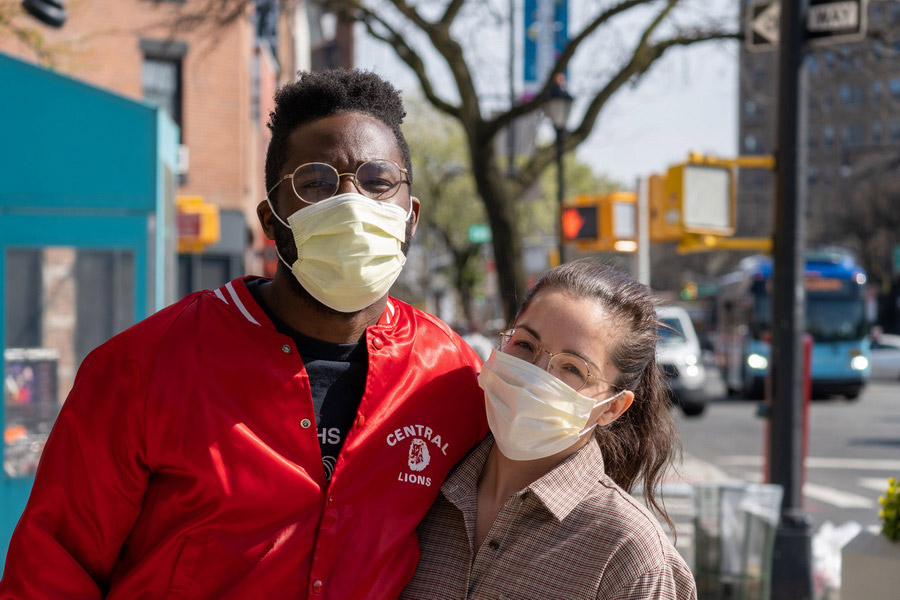
Last updated: June 4, 2022
Tajikistan and Coronavirus
Currently, there are no local restrictions or localized lockdowns in Tajikistan. Public transport is in operation, and hotels, shops, and restaurants are open but required to adhere to social distancing standards. One must wear a face mask in public spaces.
Vaccination for Tajikistan citizens is free and compulsory for all citizens over 18 years of age.
Tajikistan Covid-19 Entry Requirements and Travel Restrictions
Commercial flights to and from Dushanbe have resumed with a reduced frequency and are sometimes subject to cancellation at short notice.
Travelers should check with the airlines for up-to-date flight information.
Land border points between Tajikistan and Kyrgyzstan, China, and Afghanistan are still closed to foreign travelers. A small number of border points with Uzbekistan are open to foreign travelers with visas as well as Tajik and Uzbek citizens. Some border points with Uzbekistan, China, and Kyrgyzstan are open for local citizens or cargo only.
Travelers arriving in Tajikistan must provide confirmation of a negative PCR test, issued within 72 hours of arrival. The test must be a COVID-19 PCR swab test. Other test results including antibody tests are not accepted (the rule also applies to the children aged 3 and older). The same regulation applies to travelers transiting through Tajikistan.
Tajikistan Quarantine Rules
Travelers entering Tajikistan are not currently subject to quarantine if tested negative. If tested positive, travelers will be required to self-isolate. Please keep in mind that all of the current Tajikistan covid-19 travel restrictions are subject to change, and therefore we recommend that you double check the details and latest Tajikistan travel advice before planning your trip.
Přejít k obsahu | Přejít k hlavnímu menu | Přejít k vyhledávání

- COVID-19 travel restrictions: Tajikistan
- < Travel restrictions
Travel restrictions
By Kiwi.com July 27, 2022
By Kiwi.com | July 27, 2022
This article was published on July 27, 2022, and all the information in the article is correct as of this time. Before you book your trip, we highly recommend that you also check official sources for the most up-to-date travel requirements, as they are subject to constant change.
Can I enter Tajikistan?
You can enter Tajikistan provided you abide by the COVID-19 requirements.

Can I enter Tajikistan if I am vaccinated?
You can enter Tajikistan if you are vaccinated. You are considered fully vaccinated if at least 14 days have passed after completing your vaccination course.
At present, the following vaccine drugs are approved in Tajikistan:
- Vaxzevria (Oxford / AstraZeneca)
- CoronaVac
Travel documents if I am vaccinated
- A document confirming your vaccination status
- A COVID-19 PCR test taken no more than 72 hours before arrival
Can I enter Tajikistan if I am unvaccinated?
You can enter Tajikistan if you are unvaccinated.
Travel documents if I am unvaccinated
- A negative PCR test result taken no earlier than 72 hours before arrival
Can I leave Tajikistan?
There are no COVID-19 restrictions for leaving Tajikistan.
Travel documents if I am vaccinated
- A document confirming vaccination status
Please ensure that you’ve checked the requirements of your destination country concerning COVID-19 tests for vaccinated travelers.
Travel documents if I am unvaccinated
- A certificate of recovery from COVID-19 (no more than 180 days old before the day of crossing the border of a particular country)
- A negative COVID-19 test result (the relevant period and kind of test may vary, please check the requirements of the destination country )
COVID-19 situation in Tajikistan currently
As of May 2022, the COVID-19 situation in Tajikistan is getting safer. Some basic COVID-19 regulations have already been lifted.

Is it safe to travel to Tajikistan right now?
Yes, it is safe to travel to Tajikistan. Please note that COVID-19 measures, like requiring a vaccination certificate to enter the establishments, may vary depending on the region. However, the main requirement concerning masks has already been removed.
Is Dushanbe open for travel now?
The capital of Tajikistan is open for tourists now. Please note that there are the same countywide COVID-19 restrictions in place.
Do I have to quarantine if I go to Tajikistan?
As of May 2022, you have to get self-isolated only if you have been chosen for random on-arrival testing until you receive the results.
How do I get a health pass to travel to Tajikistan?
Currently, all health apps from other countries are accepted in Tajikistan. Otherwise, you should carry printed-out copies.
Useful link:
- Tajikistan COVID-19 updates
Visit our Travel Restrictions section at Kiwi.com Stories to read more travel restrictions articles
COVID-19 Tajikistan
Popular routes on Kiwi.com
- Cheap flights from Dubai to London
- Cheap flights from Vilnius to Tenerife
- Cheap flights from Nairobi to Eldoret
- Cheap flights from Tenerife to Vilnius
- Cheap flights from London to Prague
- Cheap flights from Barcelona to Tenerife
- Cheap flights from London to Athens
- Cheap flights from Cairo to Dubai
- Cheap flights from Berlin to Istanbul
- Cheap flights from Istanbul to Baku
- Cheap flights from London to Warsaw
- Cheap flights from London to Lisbon

6 essentials on your travel checklist during the pandemic
All you need from COVID-19 tests through to flexible booking options and your own toilet paper

No quarantine in Estonia for recovered or vaccinated travelers
Those who recovered from COVID-19 in the past six months won’t have to self-isolate

Latest developments: COVID-19 and travel
SIA aims to vaccinate employees while large companies help with the development of digital vaccination passport

Etihad and Emirates to trial COVID-19 digital passport in world first
The IATA Travel Pass mobile app should be available on iOS and Android by March 2021

COVID-19 vaccines bring hope to all travelers
Over 17 million people in 35 countries worldwide have received a vaccine by early January

Transmission of COVID-19 inflight is extremely rare, research says
The chance of contracting the virus onboard a flight is lower than getting struck by lightning
Hack the system, fly for less

New flight routes from Bratislava BTS to Turkey, Greece and Montenegro this summer with Kiwi.com!

48 hours in Tirana, Albania — the ultimate guide

See the best of Greece with Aegean Airlines and Kiwi.com
- Skip to main content
- Skip to "About this site"
Language selection
Search travel.gc.ca.
Help us to improve our website. Take our survey !
COVID-19: travel health notice for all travellers
Tajikistan travel advice
Latest updates: Editorial change
Last updated: June 5, 2024 06:24 ET
On this page
Safety and security, entry and exit requirements, laws and culture, natural disasters and climate, tajikistan - exercise a high degree of caution.
Exercise a high degree of caution in Tajikistan due to crime.
Borders with Afghanistan, Kyrgyzstan and Uzbekistan - Avoid non-essential travel
Avoid non-essential travel to the areas within 30 km of the borders with Afghanistan, Kyrgyzstan and Uzbekistan because of security concerns.
Back to top
Border areas
Some border crossings with neighbouring countries are not properly identified, especially in the Fergana Valley, where the Tajik border meets eastern Uzbekistan and southern Kyrgyzstan.
Borders may close without notice.
- Afghanistan
The land border between Tajikistan and Afghanistan has been closed since the Taliban takeover in 2021.
Tensions and occasional clashes due to territorial disputes have occurred on the border between the Sughd region of Tajikistan and the Batken region of Kyrgyzstan, including near the Vorukh enclave. Conflicts have resulted in numerous casualties, including civilians.
In September 2022, Tajikistan and Kyrgyzstan signed a ceasefire agreement, but the situation remains unpredictable and could deteriorate without notice.
The passage of persons, goods and vehicles to and from Kyrgyzstan is restricted at certain border checkpoints located on the Tajik-Kyrgyz border until further notice.
In 2020, Uzbekistan announced the completion of a demining operation along its border with Tajikistan.
Although no incidents have been reported since, landmines still pose a threat to your safety.
Marked and unmarked minefields may be present in areas bordering the following countries, especially in uncontrolled areas:
If you are traveling in any of these areas despite the advisory in effect:
- stay on main roads and paved surfaces
- avoid roadside ditches, shoulders and unmarked trails
- cross only at official border crossings
- strictly observe warning signs indicating the possible presence of landmines
Petty crime
Petty crime, such as pickpocketing and mugging, occurs. Criminals target foreigners.
Officials at the Dushanbe International Airport have claimed travel documents to be invalid in order to extort payments from travellers.
- Ensure that your personal belongings, including your passport and other travel documents, are secure at all times
- Don’t show signs of affluence or carry large sums of money
- Exercise caution, particularly in tourist areas, commercial and public establishments frequented by foreigners (e.g. markets, hotels, clubs, restaurants, bars, schools and places of worship) and at outdoor recreation events
- Ensure that your passport and visa are in order when travelling to and from the airport
- Report any case of harassment or intimidation to the Embassy of Canada to Kazakhstan, in Nur-Sultan
Violent crime
Violent crime occur.
Attacks have occurred near Dangara in southern Tajikistan, resulting in casualties.
Be vigilant if hiking or cycling in the countryside, especially in areas near the border with Afghanistan.
Women’s safety
Women travelling alone may be subject to some forms of harassment and verbal abuse. Travel in groups and in daylight.
Advice for women travellers
There is a threat of terrorism. Even though terrorist groups are known to operate in the country, attacks are infrequent and mostly target Government of Tajikistan installations, including law enforcement and military facilities.
Terrorist attacks could occur at any time. Targets could include:
- government buildings, including schools
- police and military installations and personnel
- places of worship
- airports and other transportation hubs and networks
- public areas such as tourist attractions, restaurants, bars, coffee shops, shopping centres, markets, hotels and other sites frequented by foreigners
Always be aware of your surroundings.
Demonstrations
Demonstrations may occur. Even peaceful demonstrations can turn violent at any time. They can also lead to disruptions to traffic and public transportation.
- Avoid areas where demonstrations and large gatherings are taking place
- Follow the instructions of local authorities
- Monitor local media for information on ongoing demonstrations
Mass gatherings (large-scale events)
Energy, water and food shortages as well as power outages are common throughout Tajikistan, especially in winter and spring.
Maintain a stock of emergency items at your hotel/residence. If you intend to remain in Tajikistan for extended periods, prepare and review personal emergency plans with your family.
If you intend on trekking:
- never do so alone and always hire an experienced guide from a reputable company
- buy travel insurance that includes helicopter rescue and medical evacuation
- ensure that your physical condition is good enough to meet the challenges of your activity
- ensure that you’re properly equipped and well informed about weather and other conditions that may pose a hazard
- inform a family member or friend of your itinerary, including when you expect to be back to camp
- know the symptoms of acute altitude sickness, which can be fatal
- obtain detailed information on trekking routes or ski slopes before setting out and do not venture off marked trails or slopes
- register your trip with the Committee of Emergency Situations and Civil Defence (CESCD)
- book your travel through an accredited travel agency, who will register you with the CESCD
Committee of Emergency Situations and Civil Defence - Government of Tajikistan (in Tajik and Russian)
Tourist facilities
Tourist facilities are very limited. Wireless service is unreliable in less populated areas.
Public transportation
Rail service is unreliable and underdeveloped.
Road safety
Roads outside of large towns are poorly maintained and often inaccessible to vehicles that are not equipped with 4-wheel-drive.
A new tunnel links Dushanbe and Khujand, but this road is particularly dangerous in the winter due to icy conditions.
In the spring, avalanches and landslides may block roads, and travellers may be trapped for long periods waiting for emergency services, which are slow to respond in remote areas. There are no roadside assistance companies. Many roads in the interior of the country are only open during the summer.
Gas stations are rare outside of towns. If you drive to or through remote areas, ensure that you are well equipped: bring supplies that could last you for several days and a satellite phone.
Driving practices differ greatly from those in Canada and local vehicles are poorly maintained.
There are many checkpoints, and security forces may fire at vehicles that don’t stop. Exercise caution when travelling east of Dushanbe, as armed groups have established checkpoints and targeted foreigners.
We do not make assessments on the compliance of foreign domestic airlines with international safety standards.
Information about foreign domestic airlines
Air travel is limited. In winter, poor weather conditions commonly cause sudden flight delays and cancellations. Reservations on regional airlines are not always honoured, and overcrowding on flights is common. Flights may be cancelled or significantly delayed on short notice.
Every country or territory decides who can enter or exit through its borders. The Government of Canada cannot intervene on your behalf if you do not meet your destination’s entry or exit requirements.
We have obtained the information on this page from the Tajik authorities. It can, however, change at any time.
Verify this information with the Foreign Representatives in Canada .
Entry requirements vary depending on the type of passport you use for travel.
Before you travel, check with your transportation company about passport requirements. Its rules on passport validity may be more stringent than the country’s entry rules.
Regular Canadian passport
Your passport must be valid for at least 6 months following the issuance of the visa, and for 60 days beyond the date of entry into Tajikistan.
Passport for official travel
Different entry rules may apply.
Official travel
Passport with “X” gender identifier
While the Government of Canada issues passports with an “X” gender identifier, it cannot guarantee your entry or transit through other countries. You might face entry restrictions in countries that do not recognize the “X” gender identifier. Before you leave, check with the closest foreign representative for your destination.
Other travel documents
Different entry rules may apply when travelling with a temporary passport or an emergency travel document. Before you leave, check with the closest foreign representative for your destination.
Useful links
- Foreign Representatives in Canada
- Canadian passports
Tourist visa: not required for stays of up to 30 days Business visa: not required for stays of up to 30 days Student visa: required
If you’re staying for more than 10 days, you must register with the local authorities.
If you intend on staying for more than 30 days, you must apply for a visitor visa online, valid for 60 days.
Visa Electronic Application Center - Tajik Ministry of Foreign Affairs
Restricted areas
You must obtain a permit from Tajik authorities to visit the Gorno-Badakhshan Autonomous Oblast. You may require a permit for other high risk and closed areas.
Health entry requirements
You must be tested for human immunodeficiency virus (HIV) if you are planning to reside in Tajikistan for more than three months.
- Children and travel
Learn more about travelling with children .
Yellow fever
Learn about potential entry requirements related to yellow fever (vaccines section).
Relevant Travel Health Notices
- Global Measles Notice - 13 March, 2024
- COVID-19 and International Travel - 13 March, 2024
This section contains information on possible health risks and restrictions regularly found or ongoing in the destination. Follow this advice to lower your risk of becoming ill while travelling. Not all risks are listed below.
Consult a health care professional or visit a travel health clinic preferably 6 weeks before you travel to get personalized health advice and recommendations.
Routine vaccines
Be sure that your routine vaccinations , as per your province or territory , are up-to-date before travelling, regardless of your destination.
Some of these vaccinations include measles-mumps-rubella (MMR), diphtheria, tetanus, pertussis, polio, varicella (chickenpox), influenza and others.
Pre-travel vaccines and medications
You may be at risk for preventable diseases while travelling in this destination. Talk to a travel health professional about which medications or vaccines may be right for you, based on your destination and itinerary.
Yellow fever is a disease caused by a flavivirus from the bite of an infected mosquito.
Travellers get vaccinated either because it is required to enter a country or because it is recommended for their protection.
- There is no risk of yellow fever in this country.
Country Entry Requirement*
- Proof of vaccination is not required to enter this country.
Recommendation
- Vaccination is not recommended.
* It is important to note that country entry requirements may not reflect your risk of yellow fever at your destination. It is recommended that you contact the nearest diplomatic or consular office of the destination(s) you will be visiting to verify any additional entry requirements.
About Yellow Fever
Yellow Fever Vaccination Centres in Canada
There is a risk of hepatitis A in this destination. It is a disease of the liver. People can get hepatitis A if they ingest contaminated food or water, eat foods prepared by an infectious person, or if they have close physical contact (such as oral-anal sex) with an infectious person, although casual contact among people does not spread the virus.
Practise safe food and water precautions and wash your hands often. Vaccination is recommended for all travellers to areas where hepatitis A is present.
Measles is a highly contagious viral disease. It can spread quickly from person to person by direct contact and through droplets in the air.
Anyone who is not protected against measles is at risk of being infected with it when travelling internationally.
Regardless of where you are going, talk to a health care professional before travelling to make sure you are fully protected against measles.
Hepatitis B is a risk in every destination. It is a viral liver disease that is easily transmitted from one person to another through exposure to blood and body fluids containing the hepatitis B virus. Travellers who may be exposed to blood or other bodily fluids (e.g., through sexual contact, medical treatment, sharing needles, tattooing, acupuncture or occupational exposure) are at higher risk of getting hepatitis B.
Hepatitis B vaccination is recommended for all travellers. Prevent hepatitis B infection by practicing safe sex, only using new and sterile drug equipment, and only getting tattoos and piercings in settings that follow public health regulations and standards.
The best way to protect yourself from seasonal influenza (flu) is to get vaccinated every year. Get the flu shot at least 2 weeks before travelling.
The flu occurs worldwide.
- In the Northern Hemisphere, the flu season usually runs from November to April.
- In the Southern Hemisphere, the flu season usually runs between April and October.
- In the tropics, there is flu activity year round.
The flu vaccine available in one hemisphere may only offer partial protection against the flu in the other hemisphere.
The flu virus spreads from person to person when they cough or sneeze or by touching objects and surfaces that have been contaminated with the virus. Clean your hands often and wear a mask if you have a fever or respiratory symptoms.
Coronavirus disease (COVID-19) is an infectious viral disease. It can spread from person to person by direct contact and through droplets in the air.
It is recommended that all eligible travellers complete a COVID-19 vaccine series along with any additional recommended doses in Canada before travelling. Evidence shows that vaccines are very effective at preventing severe illness, hospitalization and death from COVID-19. While vaccination provides better protection against serious illness, you may still be at risk of infection from the virus that causes COVID-19. Anyone who has not completed a vaccine series is at increased risk of being infected with the virus that causes COVID-19 and is at greater risk for severe disease when travelling internationally.
Before travelling, verify your destination’s COVID-19 vaccination entry/exit requirements. Regardless of where you are going, talk to a health care professional before travelling to make sure you are adequately protected against COVID-19.
In this destination, rabies is commonly carried by dogs and some wildlife, including bats. Rabies is a deadly disease that spreads to humans primarily through bites or scratches from an infected animal. While travelling, take precautions , including keeping your distance from animals (including free-roaming dogs), and closely supervising children.
If you are bitten or scratched by a dog or other animal while travelling, immediately wash the wound with soap and clean water and see a health care professional. In this destination, rabies treatment may be limited or may not be available, therefore you may need to return to Canada for treatment.
Before travel, discuss rabies vaccination with a health care professional. It may be recommended for travellers who are at high risk of exposure (e.g., occupational risk such as veterinarians and wildlife workers, children, adventure travellers and spelunkers, and others in close contact with animals).
Safe food and water precautions
Many illnesses can be caused by eating food or drinking beverages contaminated by bacteria, parasites, toxins, or viruses, or by swimming or bathing in contaminated water.
- Learn more about food and water precautions to take to avoid getting sick by visiting our eat and drink safely abroad page. Remember: Boil it, cook it, peel it, or leave it!
- Avoid getting water into your eyes, mouth or nose when swimming or participating in activities in freshwater (streams, canals, lakes), particularly after flooding or heavy rain. Water may look clean but could still be polluted or contaminated.
- Avoid inhaling or swallowing water while bathing, showering, or swimming in pools or hot tubs.
Travellers' diarrhea is the most common illness affecting travellers. It is spread from eating or drinking contaminated food or water.
Risk of developing travellers' diarrhea increases when travelling in regions with poor standards of hygiene and sanitation. Practise safe food and water precautions.
The most important treatment for travellers' diarrhea is rehydration (drinking lots of fluids). Carry oral rehydration salts when travelling.
Typhoid is a bacterial infection spread by contaminated food or water. Risk is higher among children, travellers going to rural areas, travellers visiting friends and relatives or those travelling for a long period of time.
Travellers visiting regions with a risk of typhoid, especially those exposed to places with poor sanitation, should speak to a health care professional about vaccination.
Insect bite prevention
Many diseases are spread by the bites of infected insects such as mosquitoes, ticks, fleas or flies. When travelling to areas where infected insects may be present:
- Use insect repellent (bug spray) on exposed skin
- Cover up with light-coloured, loose clothes made of tightly woven materials such as nylon or polyester
- Minimize exposure to insects
- Use mosquito netting when sleeping outdoors or in buildings that are not fully enclosed
To learn more about how you can reduce your risk of infection and disease caused by bites, both at home and abroad, visit our insect bite prevention page.
Find out what types of insects are present where you’re travelling, when they’re most active, and the symptoms of the diseases they spread.
Crimean-Congo haemorrhagic fever is a viral disease that can cause fever, pain and bleeding under the skin. In some cases, it can be fatal. It spreads to humans through contact with infected animal blood or tissues, or from the bite of an infected tick. Risk is generally low for most travellers. Protect yourself from tick bites and avoid animals, particularly livestock. There is no vaccine available for Crimean-Congo haemorrhagic fever.
Animal precautions
Some infections, such as rabies and influenza, can be shared between humans and animals. Certain types of activities may increase your chance of contact with animals, such as travelling in rural or forested areas, camping, hiking, and visiting wet markets (places where live animals are slaughtered and sold) or caves.
Travellers are cautioned to avoid contact with animals, including dogs, livestock (pigs, cows), monkeys, snakes, rodents, birds, and bats, and to avoid eating undercooked wild game.
Closely supervise children, as they are more likely to come in contact with animals.
Person-to-person infections
Stay home if you’re sick and practise proper cough and sneeze etiquette , which includes coughing or sneezing into a tissue or the bend of your arm, not your hand. Reduce your risk of colds, the flu and other illnesses by:
- washing your hands often
- avoiding or limiting the amount of time spent in closed spaces, crowded places, or at large-scale events (concerts, sporting events, rallies)
- avoiding close physical contact with people who may be showing symptoms of illness
Sexually transmitted infections (STIs) , HIV , and mpox are spread through blood and bodily fluids; use condoms, practise safe sex, and limit your number of sexual partners. Check with your local public health authority pre-travel to determine your eligibility for mpox vaccine.
Tuberculosis is an infection caused by bacteria and usually affects the lungs.
For most travellers the risk of tuberculosis is low.
Travellers who may be at high risk while travelling in regions with risk of tuberculosis should discuss pre- and post-travel options with a health care professional.
High-risk travellers include those visiting or working in prisons, refugee camps, homeless shelters, or hospitals, or travellers visiting friends and relatives.
Medical services and facilities
Health care is inadequate. Frequent shortages of energy and water can interrupt or impede the provision of medical services. There is also a severe shortage of basic medical supplies.
You will likely need medical evacuation in case of serious illness or injury.
Make sure you get travel insurance that includes coverage for medical evacuation and hospital stays.
Travel health and safety
Keep in Mind...
The decision to travel is the sole responsibility of the traveller. The traveller is also responsible for his or her own personal safety.
Be prepared. Do not expect medical services to be the same as in Canada. Pack a travel health kit , especially if you will be travelling away from major city centres.
You must abide by local laws.
Learn about what you should do and how we can help if you are arrested or detained abroad .
Penalties for possession, use or trafficking of illegal drugs are severe. Convicted offenders can expect jail sentences and heavy fines. The Tajik government is stepping up its raids to counter narcotics trafficking.
Although rarely enforced, smoking while walking on the street is illegal and punishable by a fine.
Drugs, alcohol and travel
You must carry an international driving permit.
International Driving Permit
Identification
Carry a copy of your passport at all times. Individuals are frequently required by the police to produce identification.
2SLGBTQI+ travellers
The laws of Tajikistan don’t prohibit sexual acts between individuals of the same sex. However, homosexuality is not widely socially accepted.
2SLGBTQI+ travellers should carefully consider the risks of travelling to Tajikistan.
Travel and your sexual orientation, gender identity, gender expression and sex characteristics
Dual citizenship
Dual citizenship is not legally recognized in Tajikistan.
If local authorities consider you a citizen of Tajikistan, they may refuse to grant you access to Canadian consular services. This will prevent us from providing you with those services.
Travellers with dual citizenship
International Child Abduction
The Hague Convention on the Civil Aspects of International Child Abduction is an international treaty. It can help parents with the return of children who have been removed to or retained in certain countries in violation of custody rights. It does not apply between Canada and Tajikistan.
If your child was wrongfully taken to, or is being held in Tajikistan by an abducting parent:
- act as quickly as you can
- consult a lawyer in Canada and in Tajikistan to explore all the legal options for the return of your child
- report the situation to the nearest Canadian government office abroad or to the Vulnerable Children's Consular Unit at Global Affairs Canada by calling the Emergency Watch and Response Centre
If your child was removed from a country other than Canada, consult a lawyer to determine if The Hague Convention applies.
Be aware that Canadian consular officials cannot interfere in private legal matters or in another country's judicial affairs.
- International Child Abductions: A guide for affected parents
- Canadian embassies and consulates by destination
- Request emergency assistance
Dress and behaviour
Although Tajikistan is a secular country, Islamic practices and beliefs are closely adhered to, particularly in conservative rural areas. Dress conservatively, behave discreetly and respect religious and social traditions to avoid offending local sensitivities.
The currency is the Tajik Somoni. The economy is primarily cash-based. U.S. dollars are widely accepted. Few international banking services are available, although an increasing number of ATMs can now be found in Dushanbe. Credit cards are accepted in major hotels, some restaurants and most banks.
Tajikistan is located in an active seismic zone.
In higher-altitude areas, there is a significant danger of floods, avalanches and landslides, especially in the spring.
Local services
Dial 112 for emergency assistance.
Consular assistance
There is no resident Canadian government office in Tajikistan. You can obtain consular assistance and further consular information from the Embassy of Canada to Kazakhstan, in Nur-Sultan.
Kyrgyz Republic, Tajikistan, Turkmenistan, Uzbekistan
For emergency consular assistance, call the Embassy of Canada to Kazakhstan, in Nur-Sultan, and follow the instructions. At any time, you may also contact the Emergency Watch and Response Centre in Ottawa.
The decision to travel is your choice and you are responsible for your personal safety abroad. We take the safety and security of Canadians abroad very seriously and provide credible and timely information in our Travel Advice to enable you to make well-informed decisions regarding your travel abroad.
The content on this page is provided for information only. While we make every effort to give you correct information, it is provided on an "as is" basis without warranty of any kind, expressed or implied. The Government of Canada does not assume responsibility and will not be liable for any damages in connection to the information provided.
If you need consular assistance while abroad, we will make every effort to help you. However, there may be constraints that will limit the ability of the Government of Canada to provide services.
Learn more about consular services .
Risk Levels
take normal security precautions.
Take similar precautions to those you would take in Canada.
Exercise a high degree of caution
There are certain safety and security concerns or the situation could change quickly. Be very cautious at all times, monitor local media and follow the instructions of local authorities.
IMPORTANT: The two levels below are official Government of Canada Travel Advisories and are issued when the safety and security of Canadians travelling or living in the country or region may be at risk.
Avoid non-essential travel
Your safety and security could be at risk. You should think about your need to travel to this country, territory or region based on family or business requirements, knowledge of or familiarity with the region, and other factors. If you are already there, think about whether you really need to be there. If you do not need to be there, you should think about leaving.
Avoid all travel
You should not travel to this country, territory or region. Your personal safety and security are at great risk. If you are already there, you should think about leaving if it is safe to do so.
- Contact Tracing
- Pandemic Data Initiative
- All Regions
- Events & News
JHU has stopped collecting data as of
After three years of around-the-clock tracking of COVID-19 data from...
Group 41 Overview
Confirmed cases, group 17 notes.
Reduced counts in U.S. cases and deaths are the result of states and territories not reporting the information for some or all of the weekend. Those states and territories are: Alaska, Colorado, Connecticut, District of Columbia, Florida, Georgia, Guam, Idaho, Illinois, Indiana, Iowa, Kansas, Kentucky, Louisiana, Maine, Massachusetts, Michigan, Minnesota, Mississippi, Montana, Nebraska, Nevada, New Hampshire, New Mexico, North Carolina, Northern Mariana Islands, Oklahoma, Rhode Island, South Carolina, South Dakota, Tennessee, Utah, U.S. Virgin Islands, Virginia, Washington, West Virginia, Wisconsin, and Wyoming. Typically, these states' Monday updates include the weekend totals.
World Countries

- Our Ministers
Please be advised that the Department of Foreign Affairs’ Travel Advice is now available at Ireland.ie/travel. Travel Advice on this webpage is no longer being updated. To ensure you receive the latest Travel Advice for Tajikistan , please see Ireland.ie .
If you’re travelling to Tajikistan, our travel advice and updates give you practical tips and useful information.
Security Status
- Normal precautions
- High degree of caution
- Avoid non-essential travel
- Do not travel
Safety and Security
Local laws and customs, additional information, embassy contact, security status.
High degree of caution.
COVID-19 Entry Requirements
Passengers travelling to Tajikistan must present proof of COVID-19 vaccination or a negative result from a COVID-19 PCR test taken no more than 72 hours before arrival.
General Travel Advice
Irish citizens require a visa to enter Tajikistan. For more information, please contact the Embassy of Tajikistan in London .
A valid passport is required for travel to Tajikistan. Irish passports should have a minimum validity of 6 months. Passport cards cannot be used.
Conflict can occur along the disputed Tajik-Kyrgyz border. Previous incidents have involved both civilians and border guards and several have involved firearms.
We advise against all travel to the Gorno-Badakhshan region, including the city of Khorog, and the Kamarob Gorge in the Rasht region.
Visitors to Tajikistan are advised to follow the guidance of national and local authorities and stay fully informed of what's going on by monitoring local news and social media.
Citizens are highly encouraged to register their travel with the Irish Embassy in Moscow, which is operating with reduced staffing at the current time.
Emergency Assistance
The best help is often close at hand so if you have problems, try talking to your local contacts, tour operator representative or hotel management.
You can contact the emergency services in Tajikistan by dialling:
- Fire brigade: 01
- Ambulance: 03
Our tips for Safe Travels:
- Get comprehensive travel insurance that covers all your planned activities.
- Register your details with us so that we can contact you quickly if there’s an unforeseen crisis like a natural disaster or a family emergency.
- Follow us on twitter @dfatravelwise for the latest travel updates.
- Read our ‘Know Before You Go’ guide.
As there is no Irish Embassy in Tajikistan, we are limited in the help we can offer you in an emergency. However, if you need assistance, you can contact the Irish Embassy in Moscow .
Safety and security
Social unrest.
The overall security situation in Tajikistan is currently stable. However, you should remain vigilant in public places and be alert to any security-related announcements by the police.
We strongly advise against all travel to the Gorno-Badakhshan region, including the city of Khorog. The Gorno-Badakhshan region is located about 500km south-east of Dunshanbe, the capital of Tajikisan. There are ongoing clashes between the security forces and militants in this area, and the security of foreign nationals cannot be guaranteed.
We also strongly advise against all travel to the Kamarob Gorge in the Rasht region.
Armed incidents continue between border forces and drug traffickers along the Afghan border. Neighbouring countries may unilaterally close borders temporarily.
Demonstrations
You should avoid any demonstrations or large gatherings of people. If you become aware of any nearby violence, leave the area immediately. Keep yourself informed of developments by monitoring the local media, and stay alert.
Tajikistan shares a continuing threat from terrorism with other countries in Central Asia. Be vigilant in public places and look out for any security-related announcements by the police. Attacks in recent years have been indiscriminate, including in places visited by expatriates and foreign travellers.
Foreign nationals could be potential targets for kidnapping in Tajikistan so follow these basic precautions:
- Get advice from your local contacts about staying safe
- Avoid travelling at night, particularly inter-city
- Avoid travelling alone
- When driving, ensure all car doors are locked
- Vary your routes and departure times – avoid patterns which could be tracked
Pay careful attention to local media for reports of kidnapping activities
Don’t venture off-road in areas immediately adjoining the Afghan, Uzbek and Kyrgyz borders, as there are both marked and unmarked minefields. Get local advice in the Tavildara region of central Tajikistan as there are a few minefields dating from the civil war in the mountains.
Local liaison
Tajikistan has not yet developed a tourist infrastructure so you should arrange to be met on arrival and guided by a responsible local business, NGO, tourist or other organisation.
There have been occasional muggings and petty crime against foreigners but Tajikistan’s capital city Dushanbe is relatively safe and there’s little evidence of criminality directed against foreigners throughout the country. However, you should always take sensible precautions:
- Don’t carry your credit card, travel tickets and money together - leave spare cash and valuables in a safe place
- Don’t carry your passport unless absolutely necessary and leave a copy of your passport (and travel and insurance documents) with family or friends at home
- Never leave drinks unattended in local bars and restaurants or accepted from strangers
- Lone visitors, in particular, should never accept lifts from strangers
- In rural areas, single women should avoid going out alone at night, and may suffer harassment even during the day.
Reporting crime
If you’re a victim of a crime while in Tajikistan, report it to the local police immediately. You can contact us at the Irish Embassy in Moscow if you need help.
If you’re planning to drive in Tajikistan, you should be extremely careful. Roads outside the main towns are poorly maintained and often only accessible by 4WD. Local vehicles are poorly maintained and driving standards are basic. Petrol stations can be limited outside towns and there are no breakdown companies.
If you want to drive:
- Bring your full Irish driving licence and your international driving permit and make sure you have adequate and appropriate insurance
- Make sure you take all you need for your journey and allow for delays
- Emergency communications such as satellite phones are advisable for up-country travel
- Road travel should only be undertaken in daylight hours
Conditions are particularly treacherous in spring due to the risk of avalanches and landslides. Many interior roads, including the main road from Dushanbe to Khojand, are only open in the summer months.
Hiring a vehicle
If you’re hiring a vehicle, we advise you not to hand over your passport as a form of security. If you’re allowing your passport to be photocopied, keep it in your sight at all times.
Check that you have adequate insurance and read the small print of the vehicle hire contract (particularly any waiver that will come into effect if the vehicle is damaged).
If you’re planning to travel to, from and/or within Tajikistan, avoid flying on airlines listed under the EU operating ban . No Western airlines fly to Tajikistan and most international flights to Dushanbe are by the state airline Tajik Air. It is not known whether maintenance procedures are always properly observed or whether passengers are covered by insurance. Tajik Air is not a member of IATA. Only two of their current aircraft (Tupolevs) are allowed to fly into EU airspace (Munich). Flights in Tajikistan may be cancelled at short notice or substantially delayed. Overloading on local flights is not uncommon.
Local laws and customs
Remember, the local laws apply to you as a visitor and it is your responsibility to follow them. Be sensitive to local customs, traditions and practices as your behaviour may be seen as improper, hostile or may even be illegal.
Personal identification
You must have a form of photographic identification to hand at all times and you should also carry a copy of your Tajik visa at all times, as there are frequent document checks by the local authorities. We advise you to carry a photocopy of the relevant page of your passport and keep the original in a safe place.
Dual nationality
The Republic of Tajikistan does not recognise dual nationality and visitors are expected to have only one passport.

Illegal drugs
Lengthy prison sentences are imposed on those found guilty of drug possession and/or drug use.
It is illegal to smoke in many public establishments.
Photography
Avoid taking photographs of anything that could be perceived as being of military or security interest as this could result in problems with the authorities.
Homosexuality is not illegal under Tajik law but is still very much frowned upon socially. Be discreet and avoid public displays of affection.
Additional information
Entry requirements (visa/passport).
For entry requirements for Tajikstan, please contact the Embassy of Tajikistan in London . You can also check with them how long your passport must be valid for.
Always check your visa and visa registration validity dates so that these documents can be renewed in good time if necessary. Always carry a copy of your Tajik visa, as there are frequent document checks by the local authorities.
It’s advisable to take a number of photocopies of your passport with you when travelling to Tajikistan and you should carry a photocopy of your passport at all times during your stay as you must have a form of photographic identification to hand at all times.
Check with your doctor well in advance of travelling to see what vaccinations you need for Tajikistan.
Medical facilities
Tajikistan is a very poor country, with poor medical facilities and a shortage of basic medical supplies. Brand name drugs may not be genuine. Medical and rescue facilities are unreliable where they exist at all. Tourist facilities are very underdeveloped, and goods and services taken for granted in Ireland may not be available. You should also take particular care over food and drink preparation.
Tuberculosis is widespread in Tajikistan. An outbreak of polio has been reported and there is a threat of typhoid, cholera and other diseases, including malaria, in summer in the Khatlon region and in the south of Gorno-Badakhshan.
We recommend that you drink only boiled or bottled water and avoid ice in drinks during your stay.
Tajikistan is a cash-only economy. You should only change money at officially authorised currency exchanges. Very few establishments accept credit cards and none accept travellers’ cheques. There are only a handful of ATM machines, and none in rural areas. US dollars are the most widely accepted foreign currency; others may be difficult to exchange.
You must fill in a Customs Declaration Form when you arrive in Tajikistan, have it stamped by Tajik officials at the port of entry and keep it until your departure so you can show that you’re not leaving Tajikistan with more money than you arrived with.
Electricity
Please note that electricity is sometimes rationed, especially during the colder months.
More travel advice
Because we don’t have an Embassy or Consulate in Tajikistan, we can’t give you up-to-date travel advice. But you can visit these foreign ministries for more detailed information:
- Australia: Department of Foreign Affairs and Trade
- New Zealand: Ministry of Foreign Affairs and Trade
Embassy contact
The Embassy operates an out-of-hours service for Irish citizens requiring emergency assistance. If you are in need of emergency assistance, please ring the Embassy Duty Officer at +7 985 928 7615
Embassy of Ireland to the Russian Federation Grokholski Perulok 5 Moscow 129010 Russia
Tel: +7 495 937 5911 Fax: +7 495 680 0623
Monday to Friday 09:30-13:00 and 14:30-17:30

Get travel and medical insurance
Before travelling, the Department strongly recommends that you obtain comprehensive travel insurance which will cover all overseas medical costs, including medical repatriation/evacuation, repatriation of remains and legal costs. You should check any exclusions and, in particular, that your policy covers you for the activities you want to undertake.

Contacting us
Contact our Embassy in Moscow for assistance
Related links
Know Before You Go
Assistance abroad
Cookies on GOV.UK
We use some essential cookies to make this website work.
We’d like to set additional cookies to understand how you use GOV.UK, remember your settings and improve government services.
We also use cookies set by other sites to help us deliver content from their services.
You have accepted additional cookies. You can change your cookie settings at any time.
You have rejected additional cookies. You can change your cookie settings at any time.
Register to vote Register by 18 June to vote in the General Election on 4 July.
- Passports, travel and living abroad
- Travel abroad
- Foreign travel advice
Warnings and insurance
The Foreign, Commonwealth & Development Office ( FCDO ) provides advice about risks of travel to help British nationals make informed decisions. Find out more about FCDO travel advice .
Before you travel
No travel can be guaranteed safe. Read all the advice in this guide and see support for British nationals abroad for information about specific travel topics.
Follow and contact FCDO travel on Twitter , Facebook and Instagram . You can also sign up to get email notifications when this advice is updated.
Travel insurance
If you choose to travel, research your destinations and get appropriate travel insurance . Insurance should cover your itinerary, planned activities and expenses in an emergency.
Related content
Is this page useful.
- Yes this page is useful
- No this page is not useful
Help us improve GOV.UK
Don’t include personal or financial information like your National Insurance number or credit card details.
To help us improve GOV.UK, we’d like to know more about your visit today. Please fill in this survey (opens in a new tab) .

- Our partners
- Press centre
Search UNICEF
- Available in:
More to explore
- Article (9)
- Photo essay (6)
- Press release (11)
- Tajikistan (26)

Impact Assessment

We must prioritize girls in our COVID-19 recovery

Two thirds of households with children have lost income during pandemic

501,200 Dozes of the COVID-19 Vaccine Funded by Japan Arrived to Tajikistan

Supporting Tajikistan with equitable access to COVID-19 vaccines

Combating malnutrition among young children in Tajikistan amidst COVID-19

COVID-19 ‘biggest global crisis for children in our 75-year history’ – UNICEF

ADB-financed COVID-19 vaccines arrive in Tajikistan

Navigating pregnancy during the COVID-19 pandemic

What you need to know about the Delta variant

Back to school

1.5 million doses of Moderna Vaccines arrive in Tajikistan
- aid.govt.nz
- mfat.govt.nz
- NZ Embassies

Official advice for New Zealanders living and travelling overseas
- Before you go
- Quick checklist and tips
- Disability information
- Dual Citizenship
- Going to Australia?
- LGBTQIA+ travellers
- Staying healthy while travelling
- Passports and visas
- Solo travellers
- Travel insurance
- Travelling with a criminal conviction
- Work and income benefits
- Travel advisories
- By destination
- Central Asia
- Central/South America
- Travel tips - travel to Europe
- Middle East
- North America
- Travel tips - travel to the United States
- South East Asia
- About our advisories
- Travel advisory risk levels
- News features
- When things go wrong
- Arrest and detention
- Contingency planning for New Zealanders overseas
- Financial difficulties
- Hostage taking and kidnapping
- Illness and injury
- Internet dating scams
- Internet fraud and international scams
- Large-scale emergency
- Lost, stolen or damaged passport
- Missing persons
- Nuclear incident
- Victims of crime
- Family issues
- Child abductions
- Combating sex crimes against children
- Inter-country adoptions
- Travelling with children
- Our services
- New Zealand embassy locator
- Travel Advice /
- Section pages:
- Reviewed: 22 March 2024, 14:31 NZDT
- Still current at: 7 June 2024
- Get updates by RSS
- Get updates by email
Related news features
- Brexit: New Zealanders in the United Kingdom Reviewed: 5 February 2020, 15:15 NZDT
- Travelling as a Dual Citizen Reviewed: 21 January 2020, 11:58 NZDT
- View all news
If you are planning international travel at this time, please read our COVID-19 related travel advice here , alongside our destination specific travel advice below.
Avoid non-essential travel
Avoid all non-essential travel to areas bordering Afghanistan, Uzbekistan and Kyrgyzstan due to security concerns, and the presence of landmines (level 3 of 4).
Avoid all non-essential travel to the Gorno-Badakhshan Autonomous Oblast due to the uncertain security situation (level 3 of 4).
Exercise increased caution
Exercise increased caution elsewhere in Tajikistan due to the threat from terrorism (level 2 of 4).
Terrorism Terrorist attacks have occurred in Tajikistan, including those targeting foreigners. Terrorists may target tourist locations and other public areas. On 29 July 2018, 4 tourists were killed in a deliberate attack while cycling in the south of the country in Danghara. New Zealanders are advised to keep themselves informed of potential risks to safety and security by monitoring the media and other local information sources. We recommend following any instructions issued by the local authorities and exercising vigilance in public places.
Border Areas There have been armed clashes between Tajik security forces and suspected criminal groups in border areas, and both marked and unmarked minefields are present. We advise against venturing off the main roads.
Use caution if travelling east of Dushanbe as armed groups have established checkpoints targeting foreigners. The border with Afghanistan remains unstable, as this area is used as a transit point for drugs and other forms of illegal trafficking. Border crossings are often closed at short notice.
Gorno-Badakhshan Travel to this area requires a special permit. There were sporadic outbreaks of violence in recent years and there is a heightened security presence. The situation is currently stable however tensions still remain in the regional capital of Khorog, and further violent incidents are possible. The area may be closed to visitors at short notice.
Crime While the security situation is generally stable, and Dushanbe is relatively secure, there have been occasional muggings and petty crime occurs. Those perceived to have money, including foreigners, may be targeted. We advise New Zealanders to be alert to their surroundings at all times and take steps to safeguard and secure their personal belongings.
There have been reported instances of sexual assault, including suspected drink spiking incidents targeting foreigners. Extra care should be taken to ensure your food and drink is never left unattended. We recommend against accepting drinks from strangers or recent acquaintances. Walking alone or travelling after dark is not recommended, especially for women.
General travel advice Local police often ask to see proof of identity. We recommend you carry a photocopy of your passport and visa at all times.
New Zealanders travelling or living in Tajikistan should have a comprehensive travel insurance policy in place that includes provision for medical evacuation by air. There are shortages of even the most basic medical supplies in Tajikistan.
New Zealanders in Tajikistan are encouraged to register their details with the Ministry of Foreign Affairs and Trade.
Travel tips
- For current health alerts
The New Zealand Embassy Moscow, Russian Federation is accredited to Tajikistan
Street Address 44 Povarskaya Ulitsa , Moscow 121069, Russian Federation Telephone +7 495 956 3579 Alternate Telephone +7 495 956 3580 Fax +7 495 956 3583 Email [email protected] Web Site http://www.mfat.govt.nz/russia Hours Mon - Fri 0900 - 1230, 1330 - 1730 hrs
See our regional advice for Central Asia
Top of page
Share this page:
Related News features
Accredited new zealand embassy russian federation.
Telephone: +7 495 956 3579
Alternate Telephone: +7 495 956 3580
Fax: +7 495 956 3583
Email: [email protected]
Website: http://www.mfat.govt.nz/russia
Hours: Mon - Fri 0900 - 1230, 1330 - 1730 hrs
Related advice from other countries
- United Kingdom
- United States of America
Other pages in this section:
Ministry of Foreign Affairs and Trade 195 Lambton Quay Private Bag 18 901 Wellington 5045 New Zealand
- About this site
- Accessibility

Search Smartraveller

Latest update
Exercise a high degree of caution in Tajikistan overall due to the threat of terrorism and the risk of civil unrest.
Higher levels apply in some areas.
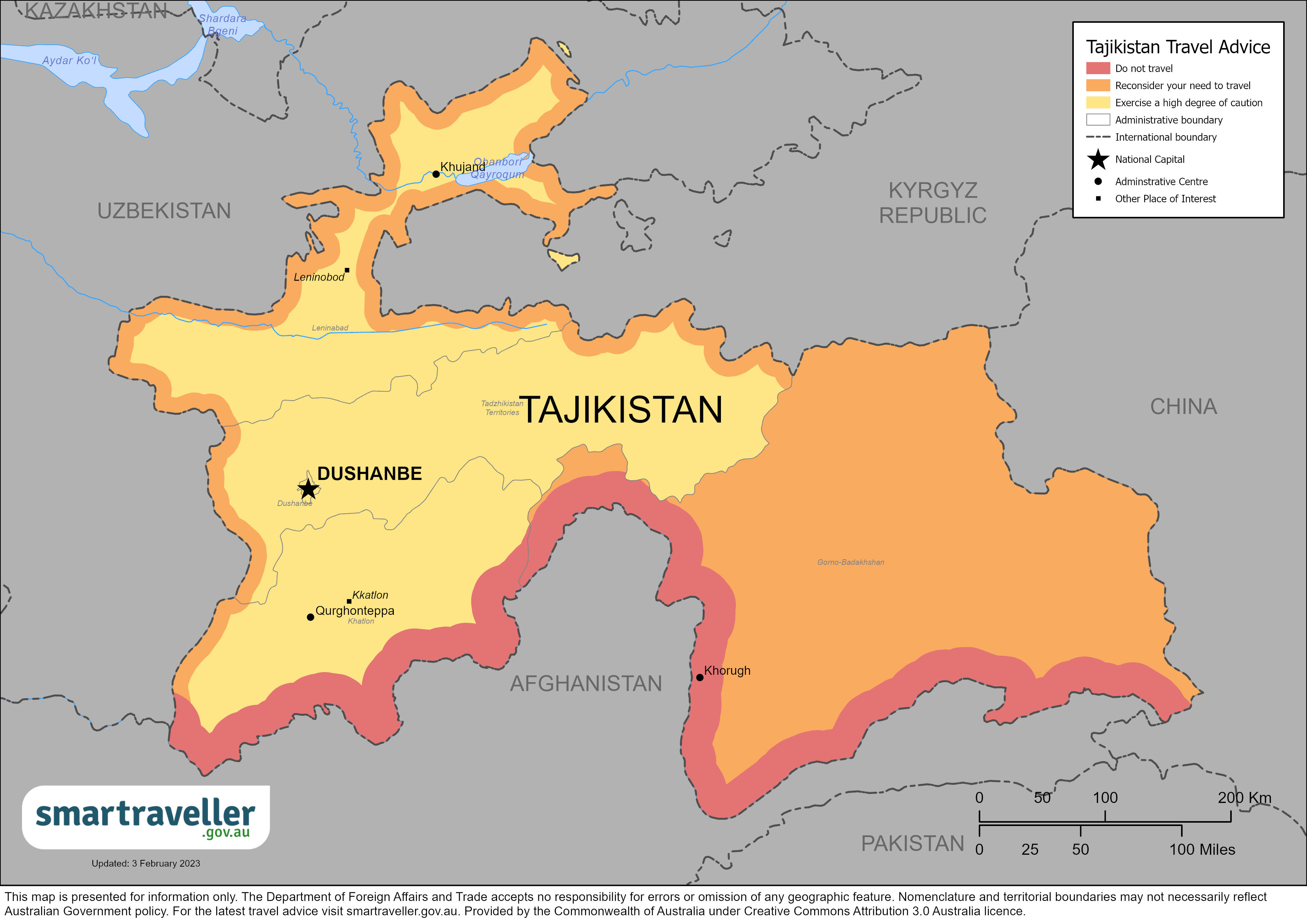
Tajikistan (PDF 255.09 KB)
Asia (PDF 2.21 MB)
Local emergency contacts
Fire and rescue services, medical emergencies.
Call 03 or go to the hospital.
Call 02 or go to the local police station.
Advice levels
Do not travel to the border region with Afghanistan.
Do not travel to the border region with Afghanistan due to the volatile security situation.
Reconsider your need to travel to border regions with the Kyrgyz Republic and Uzbekistan and to the Gorno Badakhshan Autonomous Oblast (GBAO).
Reconsider your need to travel to:
- border regions with the Kyrgyz Republic and Uzbekistan because of the risk posed by landmines and criminal activity
- to the Gorno Badakhshan Autonomous Oblast (GBAO) due to the risk of violence.
- Terrorist attacks have happened in Tajikistan. In recent years, there have also been explosions in some locations, including Dushanbe. Be cautious when visiting possible terrorist targets. Take official warnings seriously and follow the advice of local authorities.
- Avoid travelling to the border area with Afghanistan due to the volatile security situation. It's also a transit point for drugs and other smuggled goods. If, despite our advice, your travel to this area, be alert to your surroundings at all times.
- In September 2022, military clashes in the Sughd Region bordering the Kyrgyz Republic escalated into an armed conflict. Following a ceasefire agreement, the security situation remains volatile and could deteriorate further with little warning. Avoid all non-essential travel to the Tajik-Kyrgyz border area.
- Political violence has happened in the Gorno-Badakhshan Autonomous Oblast (GBAO). Extra security measures are in place.
- Earthquakes, avalanches, mudslides and floods happen in Tajikistan. Closely monitor local media and other sources, like the Global Disaster Alert and Coordination System . Follow the advice of local authorities.
Full travel advice: Safety
- Some medications containing codeine are restricted in Tajikistan. If you intend to bring medication, confirm it's legal and check the rules that apply. Declare all medicines and other restricted items on arrival. If you don't, or if the amount you carry is over the legal limits, you could face charges.
- Ticks are very common in forests and country areas from spring to autumn. Check your body for ticks during and after travel in forests. Ensure your accommodation is insect-proof. Use insect repellent.
- Unprotected uranium and pesticide waste dumps in the northern Sughd Region may pose a health risk. Seek local advice.
- Medical facilities and services are limited in Tajikistan, and there's a shortage of equipment and medications. Hygiene is poor. Doctors require up-front payment before providing treatment.
Full travel advice: Health
- Don't use or carry illegal drugs. Penalties for drug offences include lengthy imprisonment in local jails.
- You must carry a copy of your current passport and visa at all times.
- It's illegal to drive with a blood alcohol level above zero. It's illegal to smoke on the street and in public places. Taking artefacts or cultural items out of Tajikistan without official permission is illegal.
- Be careful when taking photos. Photographing sensitive sites, including transport facilities, government buildings and military zones, assets and personnel, is illegal.
- Tajikistan has conservative codes of dress and behaviour. If in doubt, dress conservatively and seek local advice. Same-sex relationships are legal in Tajikistan, but they're not widely accepted. Avoid public displays of affection.
Full travel advice: Local laws
- You can enter Tajikistan once and stay up to 30 days without a visa. You'll need a visa if you stay longer than 30 days or need multiple entries. Entry and exit conditions can change at short notice. You should contact the nearest embassy or consulate of Tajikistan for the latest details.
- You must register with the local authorities within 10 working days of arrival.
- You need a permit to visit Gorno-Badakhshan Autonomous Oblast (GBAO). Contact the nearest embassy or consulate of Tajikistan for details.
- Tajikistan's borders can close without notice. Ask local authorities which border crossings are open and if you can use them.
- Declare any money you bring into Tajikistan on arrival. Present your customs declaration form when you leave.
Full travel advice: Travel
Local contacts
- The Consular Services Charter details what the Australian Government can and can't do to help you overseas.
- Australia doesn't have an embassy in Tajikistan. Contact the Australian Embassy in Russia for consular assistance.
- To stay up to date with local information, follow the Embassy's social media accounts.
Full travel advice: Local contacts
Full advice
Terrorist attacks have occurred in Tajikistan. Tajik security forces have prevented many more. Terrorists may attack with little or no warning, targeting tourist locations and other public areas.
In November 2019, it was reported that 17 people were killed in an armed attack on the Tajik security checkpoint Ishkobod in Rudaki District on the Tajik/Uzbek border, 60km south-west of Dushanbe. Local authorities advised that IS was responsible for the attack.
Explosions have been reported in some locations, including Dushanbe, in recent years.
To stay safe:
- be alert to possible threats, especially in public places
- be cautious when visiting potential terrorist targets
- report any suspicious activity or items to police
- monitor the media for threats
- take official warnings seriously
- follow the advice of local authorities
If there's an attack, leave the area as soon as it's safe.
Terrorism is a threat worldwide.
More information:
Civil unrest and political tension
Avoid travelling to the border area with Afghanistan due to the volatile security situation. It's also a transit point for drugs and other smuggled goods. If, despite our advice, you travel to this area, always be alert to your surroundings.
In September 2022, military clashes at the border between the Sughd Region of Tajikistan and the Batken region of Kyrgyz Republic escalated into an armed conflict, where more than 100 people were killed and 140 000 evacuated. Following a ceasefire agreement, the security situation remains volatile and could deteriorate further with little warning. Avoid all non-essential travel to the Tajik-Kyrgyz border area.
Political violence has occurred in the Gorno-Badakhshan Autonomous Oblast (GBAO). Extra security measures are in place.
You need a special permit to travel into the GBAO. See Travel .
Demonstrations and protests
Public protests and events that draw large groups of people can turn violent. Avoid demonstrations and public gatherings.
Monitor the media and local sources for updates about possible unrest. Avoid affected areas.
- Demonstrations and civil unrest
Pickpocketing is common in Dushanbe and on international rail services. Travellers may be targeted.
Women can be subject to verbal and physical harassment.
Criminal activity increases after dark.
Criminal groups are particularly active in Tajikistan's border regions. The region bordering Afghanistan is a transit point for drugs and other smuggled goods.
Occasional clashes occur between government forces and criminal groups, particularly in the regions bordering Uzbekistan and the Kyrgyz Republic.
To protect yourself from crime:
- leave valuables in a secure location
- carry a copy of your passport and visa
- take particular care if travelling alone or at night
- watch your belongings on buses and taxis, especially at night
- always keep your vehicle and accommodation locked
- be alert to suspicious behaviour
Cyber security
You may be at risk of cyber-based threats during overseas travel to any country. Digital identity theft is a growing concern. Your devices and personal data can be compromised, especially if you're connecting to Wi-Fi, using or connecting to shared or public computers, or to Bluetooth.
Social media can also be risky in destinations where there are social or political tensions or laws that may seem unreasonable by Australian standards. Travellers have been arrested for things they have said on social media. Don't comment on local or political events on your social media.
More information:
- Cyber security when travelling overseas
Climate and natural disasters
Earthquakes happen in Tajikistan.
Avalanches, mudslides and floods happen in mountainous areas.
If a natural disaster or severe weather occurs:
- secure your passport in a safe, waterproof location
- closely monitor local media and other sources, like the Global Disaster Alert and Coordination System
- keep in contact with your friends and family.
Travel insurance
Get comprehensive travel insurance before you leave.
Your policy needs to cover all overseas medical costs, including medical evacuation. The Australian Government won't pay for these costs.
If you can't afford travel insurance, you can't afford to travel. This applies to everyone, no matter how healthy and fit you are.
If you're not insured, you may have to pay many thousands of dollars up-front for medical care.
- what activities and care your policy covers
- that your insurance covers you for the whole time you'll be away
Physical and mental health
Consider your physical and mental health before you travel, especially if you have an existing medical condition.
See your doctor or travel clinic to:
- have a basic health check-up
- ask if your travel plans may affect your health
- plan any vaccinations you need
Do this at least 8 weeks before you leave.
If you have immediate concerns for your welfare or the welfare of another Australian, call the 24-hour Consular Emergency Centre on +61 2 6261 3305 or contact your nearest Australian Embassy, High Commission or Consulate to discuss counselling hotlines and services available in your location.
- General health advice
- Healthy holiday tips (Healthdirect Australia)
Medications
Not all medication available over the counter or by prescription in Australia is available in other countries. Some may even be considered illegal or a controlled substance, even if prescribed by an Australian doctor.
Some sleeping tablets and medications containing codeine are controlled in Tajikistan.
If you plan to bring medication, check if it's legal in Tajikistan. Take enough legal medicine for your trip.
Carry a copy of your prescription and a letter from your doctor stating:
- what the medicine is
- your required dosage
- that it's for personal use
Declare all medications and other restricted items on arrival. If you don't declare them or you're carrying amounts over the legal limit, you could face charges even if you have the required paperwork.
- Embassy or consulate of Tajikistan
- Ministry of Foreign Affairs of Tajikistan
Health risks
Ticks are very common in forests and country areas. They're active from spring to autumn (March to November).
Check your body for ticks during and after travel in forests.
To protect yourself against illness:
- ensure your accommodation is insect-proof
- use insect repellent
- wear long, loose, light-coloured clothing
- consider taking medicine to prevent malaria
Other health risks
Waterborne, foodborne, parasitic, and other infectious diseases are common. They include:
- tuberculosis
- brucellosis
Serious outbreaks sometimes occur.
To protect yourself from illness:
- drink boiled water or bottled water with sealed lids
- avoid ice cubes
- avoid raw and undercooked food, such as salads
- avoid contact with dogs and other mammals
If you're bitten or scratched by an animal, get medical help immediately.
Seek medical advice if you have a fever or diarrhoea.
Tailings and pesticides
Unprotected uranium and pesticide waste dumps in the northern Sughd Region may pose a health risk.
Seek local advice.
Medical care
Medical facilities.
Medical facilities and services are limited in Tajikistan. Hygiene is poor, and there's a shortage of medical equipment and medications.
Doctors will ask for up-front payment before providing treatment.
If you're seriously ill or injured, you may be moved to a place with better facilities. Medical evacuation can be very expensive.
The Australian Embassy in Moscow can give you a list of medical facilities in Tajikistan.
You're subject to all local laws and penalties, including those that may appear harsh by Australian standards. Research local laws before travelling.
Law enforcement agencies in Tajikistan cooperate closely with agencies in Commonwealth of Independent States (CIS) countries. If you commit an offence in one of these countries, you may be detained in another (including at the border) and extradited for prosecution.
If you're arrested or jailed, the Australian Government will do what it can to help you under our Consular Services Charter . But we can't get you out of trouble or out of jail.
- Arrested or jailed
Penalties for drug offences include long prison terms in local jails.
- Carrying or using drugs
You must always carry a copy of your current passport and visa.
In Tajikistan, it's illegal to:
- drive with a blood alcohol limit of over 0%
- smoke in public places, including on the street
- take artefacts or cultural items out of Tajikistan without a permit
It's also illegal to photograph sensitive sites, including:
- military zones, assets, or personnel
- transport facilities
- government buildings
Australian laws
Some Australian criminal laws still apply when you're overseas. If you break these laws, you may face prosecution in Australia.
- Staying within the law and respecting customs
Dual citizenship
Tajikistan doesn't recognise dual nationality.
If you're a dual citizen, this limits the consular services we can give if you're arrested or detained.
Tajik authorities may insist you enter Tajikistan on your Tajik passport. If they don't, always travel on your Australian passport .
- Dual nationals
Local customs
Tajikistan has conservative and traditional standards of dress and behaviour.
Public displays of affection may offend locals.
If in doubt, dress conservatively and seek local advice.
Same-sex relationships are legal in Tajikistan, but they're not widely accepted. Avoid public displays of affection.
- LGBTI travellers
The Islamic holiday month of Ramadan is observed in Tajikistan. Respect religious and cultural customs and laws at this time.
During Ramadan, eating, drinking, or smoking may be illegal in public during the day. If you're not fasting, avoid these activities around people who are. Seek local advice to avoid offence.
Explore our Ramadan page to learn more, including dates for Ramadan.
Visas and border measures
Every country or territory decides who can enter or leave through its borders. For specific information about the evidence you'll need to enter a foreign destination, check with the nearest embassy, consulate or immigration department of the destination you're entering.
Australians can enter Tajikistan under a visa-free arrangement. The arrangement covers single-entry stays of up to 30 days.
You'll still need a visa for the following:
- stays of more than 30 days
- multiple entries.
Tajik visas specify validity, the number of entries and length of stay. Check your visa details are correct when you get it.
The length of stay on your visa may differ from the length of your application.
Ensure you have the correct visa type and leave the country before your visa expires.
Entry and exit conditions can change at short notice. For details about visas, customs and quarantine rules, contact:
- an embassy or consulate of Tajikistan
- the Ministry of Foreign Affairs of Tajikistan, Consular Service Section
Other formalities
Registration.
You must register with the local authorities within 10 working days of arrival.
Hotels will only register you for the duration of your hotel stay. If you change accommodation, you will need to register again.
Travellers visiting Tajikistan for more than 90 days must do a health test.
- Embassies and consulates of Tajikistan
You need a permit to visit Gorno-Badakhshan Autonomous Oblast (GBAO).
Tajik embassies and consulates issue this permit. The permit is subject to the security situation in the neighbouring regions.
Apply at the Ministry of Foreign Affairs or Passport-Registration Service of the Ministry of Interior of Tajikistan.
Border crossings
Tajikistan's borders can close without notice.
Some border crossings may only be open to locals.
Ask local authorities which border crossings are open and if you can use them.
Some countries won't let you enter unless your passport is valid for 6 months after you plan to leave that country. This can apply even if you're just transiting or stopping over.
For Tajikistan, ensure your passport is valid for at least 6 months and has 2 empty pages.
Some foreign governments and airlines apply the rule inconsistently. Travellers can receive conflicting advice from different sources.
You can end up stranded if your passport is not valid for more than 6 months.
The Australian Government does not set these rules. Check your passport's expiry date before you travel. If you're not sure it'll be valid for long enough, consider getting a new passport .
Lost or stolen passport
Your passport is a valuable document. It's attractive to people who may try to use your identity to commit crimes.
Some people may try to trick you into giving them your passport. Always keep it in a safe place.
If your passport is lost or stolen, tell the Australian Government as soon as possible:
- In Australia, contact the Australian Passport Information Service .
- If you're overseas, contact the nearest Australian embassy or consulate .
Passport with ‘X’ gender identifier
Although Australian passports comply with international standards for sex and gender, we can’t guarantee that a passport showing 'X' in the sex field will be accepted for entry or transit by another country. Contact the nearest embassy, high commission or consulate of your destination before you arrive at the border to confirm if authorities will accept passports with 'X' gender markers.
- LGBTI travellers
The official currency is the Tajik Somoni (TJS). US dollars and euros are readily accepted.
You can't exchange US banknotes issued before 1996.
You'll need to declare any money you bring into Tajikistan on arrival. Immigration officers will check your customs declaration form when you leave to make sure you're not taking more money out than you brought in.
The Tajik economy is largely cash-based. Traveller's cheques aren't accepted. Very few places accept credit cards.
International banking services are limited.
You'll find several ATMs in Dushanbe and larger cities, but not in some rural areas.
Local travel
Driving permit.
To drive in Tajikistan, you need both:
- a valid Australian driver's licence
- a valid International Driving Permit (IDP)
Get your IDP before you leave Australia. Driving without it could void your insurance.
Road travel
Road conditions and driving standards are poor.
Driving at night is dangerous.
It's illegal to drive with a blood alcohol level above zero.
Police and military checkpoints are common. You may need to provide identification documents at checkpoints.
Avalanches and landslides can occur in winter and spring. Road conditions can be unpredictable during this time.
Many interior roads are open only in the summer, including the main road from Dushanbe to Khujand.
Service stations are limited in rural areas.
To stay safe when driving:
- understand local traffic laws and practices
- avoid driving at night
- ask locals for advice on road conditions
- make sure you have enough petrol when travelling in rural areas
- Driving or riding
Motorcycles
Check if your travel insurance covers you when riding a motorbike.
Always wear a helmet.
Only use licensed taxis and limousines. Arrange these through your hotel.
Public transport
Public transport in the city is often overcrowded and unsafe.
Bus services between major cities are unreliable.
Rail travel
Rail travel can be unreliable. It can also be dangerous due to criminal activity.
Flight cancellations and delays at Dushanbe International Airport are common.
If you need to leave Tajikistan quickly, you may need valid entry visas for alternative destinations.
In April 2022, the EU announced that 21 Russian-owned airlines were banned from flying in EU airspace due to safety concerns.
DFAT doesn't provide information on the safety of individual commercial airlines or flight paths.
Check Tajikistan's air safety profile with the Aviation Safety Network.
Emergencies
Depending on what you need, contact your:
- family and friends
- travel agent
- insurance provider
Always get a police report when you report a crime.
Your insurer should have a 24-hour emergency number.
Consular contacts
Read the Consular Services Charter . It details what the Australian Government can and can't do to help you overseas.
Australia doesn't have an embassy in Tajikistan. You can contact the Australian Embassy in Russia for consular assistance.
Australian Embassy, Moscow
13 Kropotkinsky Pereulok Moscow 119034 Russia Phone: (+7 495) 956-6070 Fax: (+7 495) 956-6170 Website: russia.embassy.gov.au Twitter: @PosolAustralia
Check the Embassy website for details about opening hours and any temporary closures.
24-hour Consular Emergency Centre
In a consular emergency, if you can't contact an embassy, call the 24-hour Consular Emergency Centre on:
- +61 2 6261 3305 from overseas
- 1300 555 135 in Australia

Travelling to Tajikistan?
Sign up to get the latest travel advice updates..
Be the first to know official government advice when travelling.
Tajikistan Travel Restrictions
Traveller's COVID-19 vaccination status
Travelling from the United Arab Emirates to Tajikistan
Open for vaccinated visitors
COVID-19 testing
Not required
Not required for vaccinated visitors
Restaurants
Not required in public spaces and public transportation.
Ready to travel?
Find flights to tajikistan, explore more countries on travel restrictions map, destinations you can travel to now, dominican republic, philippines, saudi arabia, the bahamas, united kingdom, united states, know when to go.
Sign up for email alerts as countries begin to open - choose the destinations you're interested in so you're in the know.
Can I travel to Tajikistan from the United Arab Emirates?
Most visitors from the United Arab Emirates, regardless of vaccination status, can enter Tajikistan.
Can I travel to Tajikistan if I am vaccinated?
Fully vaccinated visitors from the United Arab Emirates can enter Tajikistan without restrictions.
Can I travel to Tajikistan without being vaccinated?
Unvaccinated visitors from the United Arab Emirates can enter Tajikistan without restrictions.
Do I need a COVID test to enter Tajikistan?
Visitors from the United Arab Emirates are not required to present a negative COVID-19 PCR test or antigen result upon entering Tajikistan.
Can I travel to Tajikistan without quarantine?
Travellers from the United Arab Emirates are not required to quarantine.
Do I need to wear a mask in Tajikistan?
Mask usage in Tajikistan is not required in public spaces and public transportation.
Are the restaurants and bars open in Tajikistan?
Restaurants in Tajikistan are open. Bars in Tajikistan are .

Hello Positive Mindset
Travel 2024: Is It Safe to Explore the World Again?
Posted: June 6, 2024 | Last updated: June 6, 2024
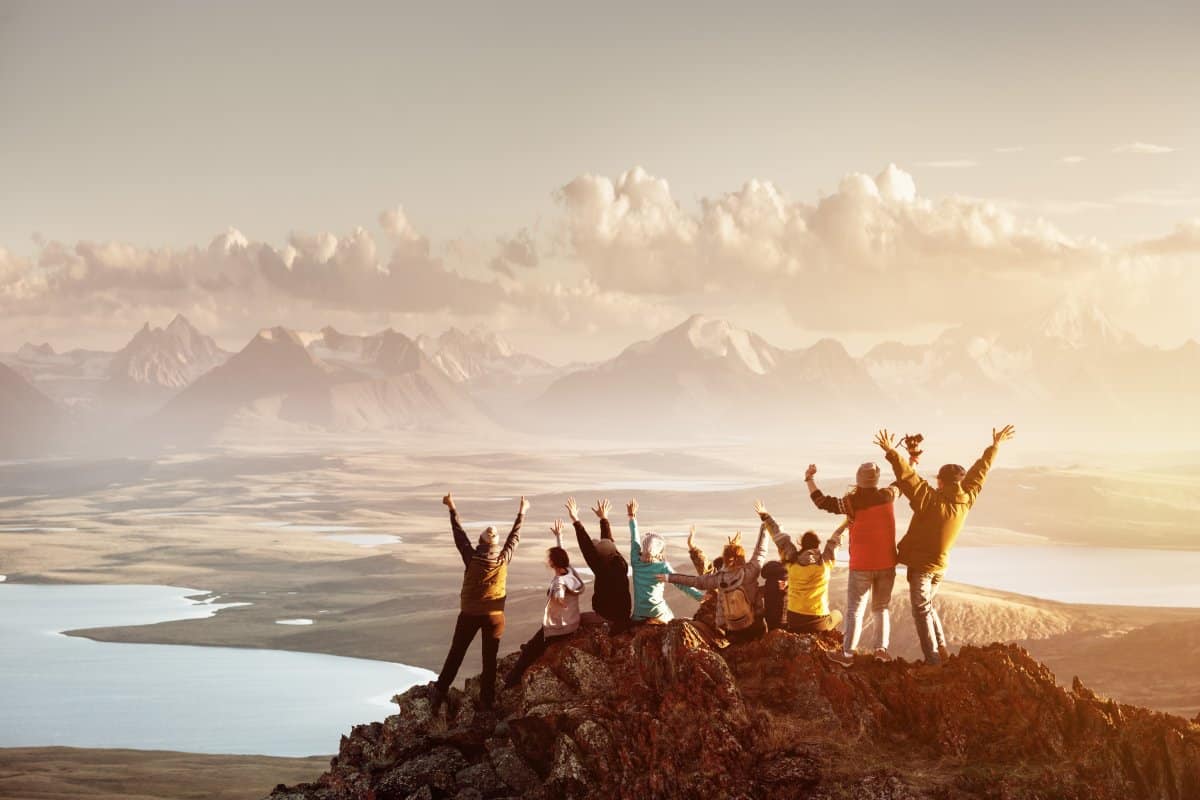
As we move toward summer 2024, the global travel landscape is shaped by numerous factors beyond the pandemic. From health outbreaks to geopolitical tensions, here are 20 critical factors to consider before booking your next adventure.
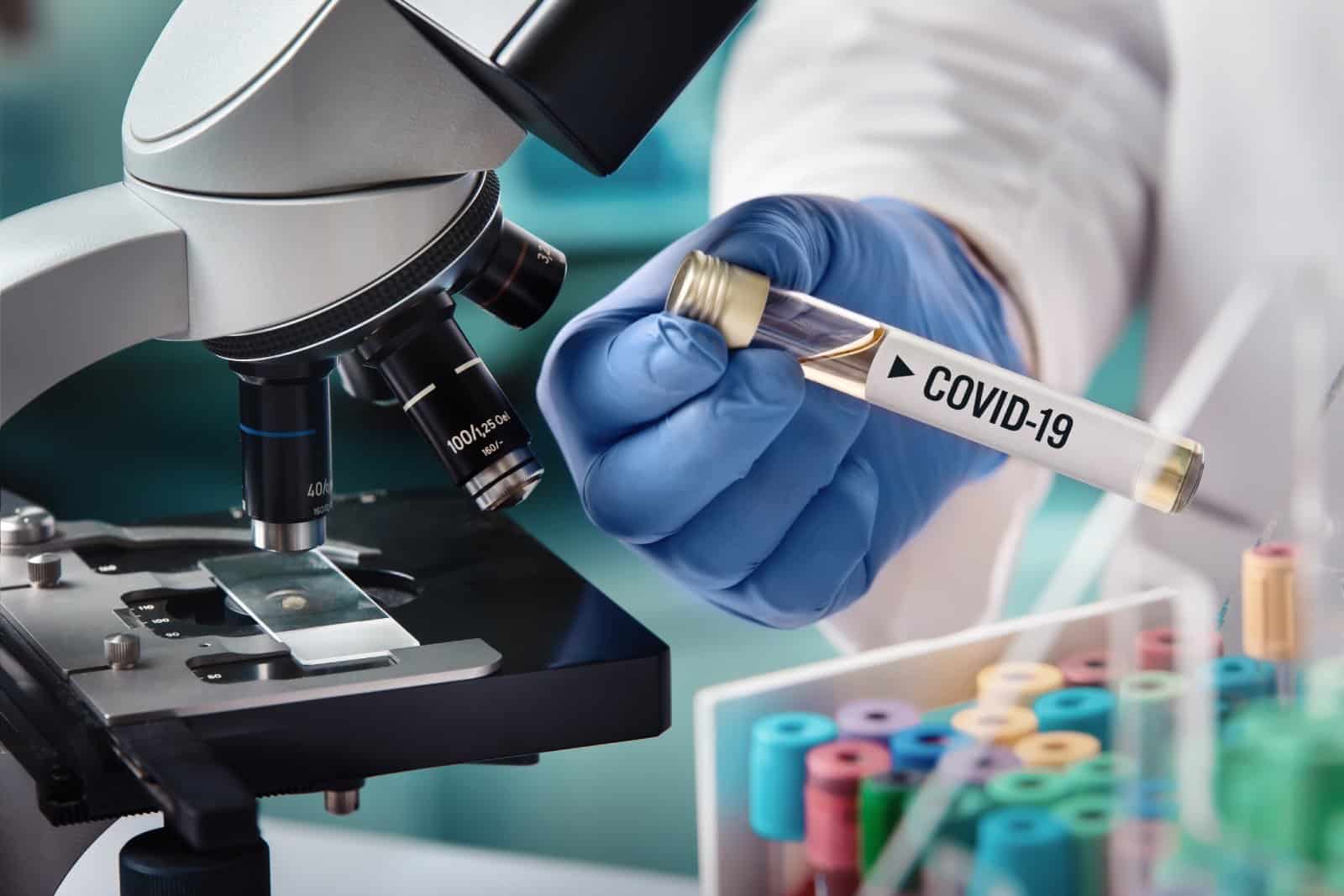
1. Lingering COVID-19 Concerns
While COVID-19 is controlled in many regions, outbreaks still occur, particularly in densely populated cities. Travelers should verify health advisories and entry requirements specific to their destinations.

2. Rise in Monkeypox Cases
Countries like the USA and parts of Western Europe have reported increased cases of monkeypox. Check health advisories and consider vaccinations where available.

3. Measles Outbreaks
Recent surges in measles have been reported in areas with low vaccination rates, including parts of Africa and Asia. Ensure your vaccinations are up-to-date before traveling to these regions.
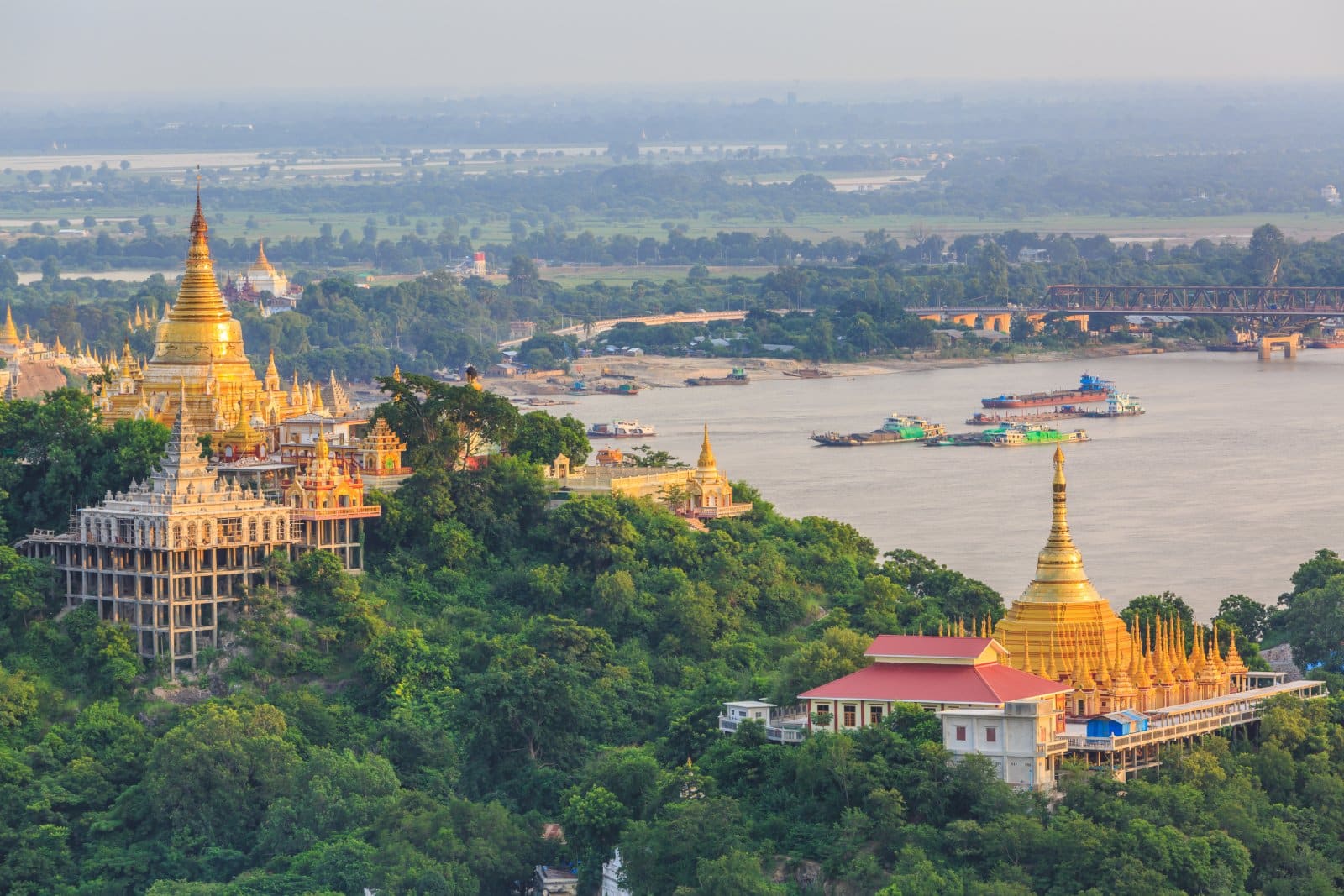
4. Political Instability
Countries such as Myanmar and Sudan are experiencing political unrest that can affect safety for tourists. Stay updated with government travel advisories before visiting these areas.
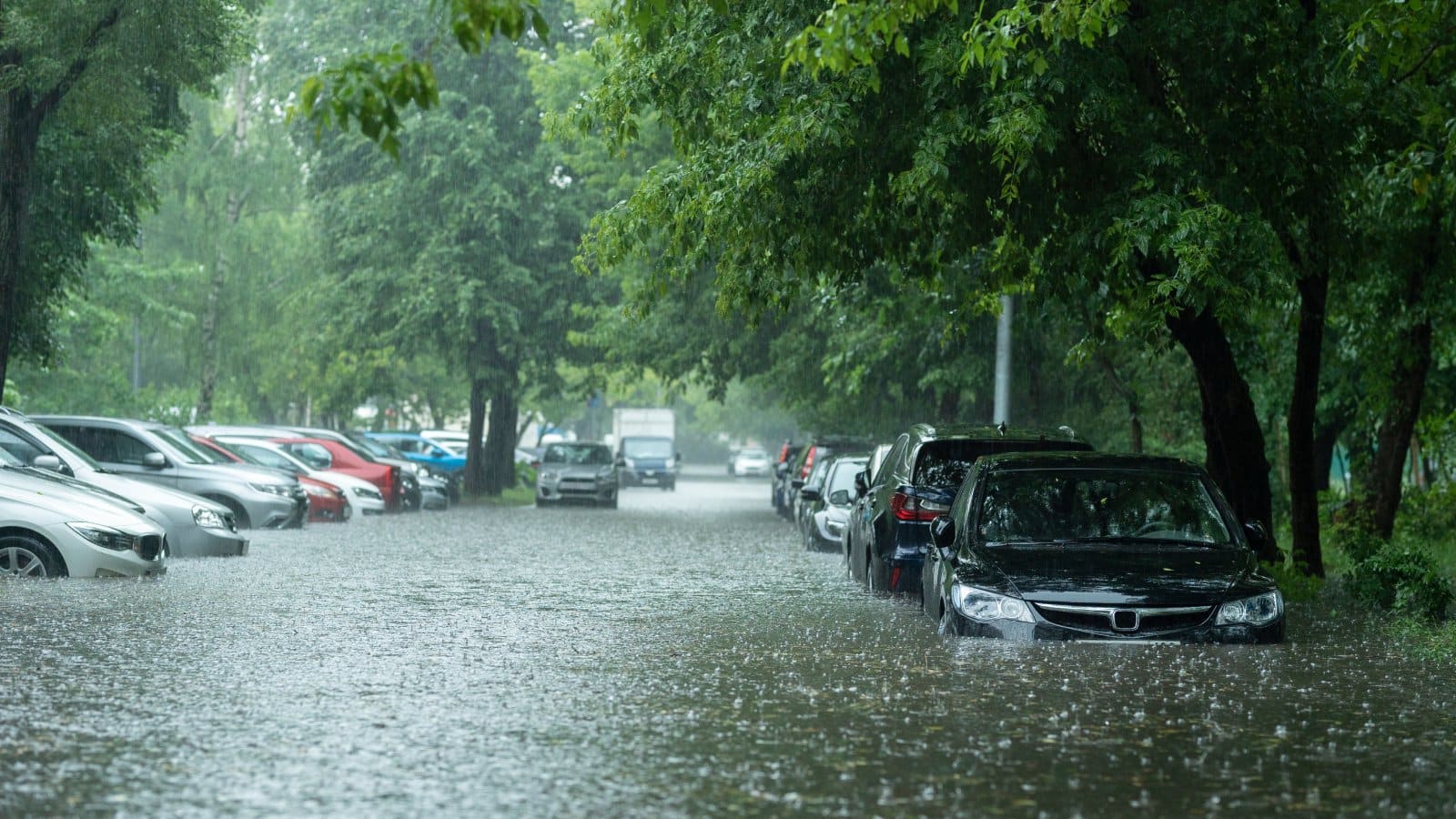
5. Natural Disasters
With climate change, regions like Southeast Asia and the Caribbean are experiencing more frequent hurricanes and floods. Be aware of seasonal weather patterns prior to travel.
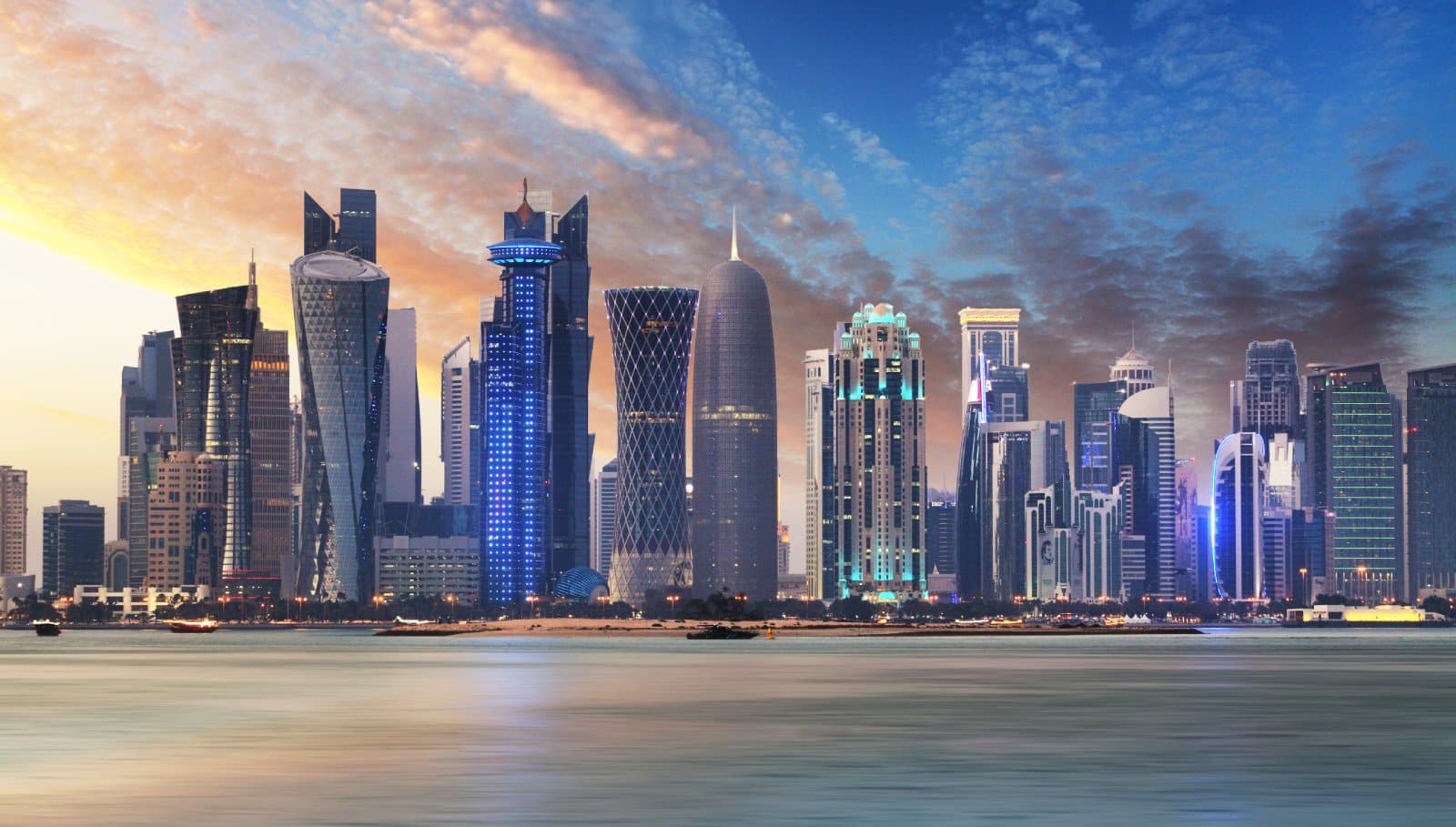
6. Terrorism Threats
The Middle East and North Africa continue to have heightened risks of terrorism. Travelers should be extremely cautious and stay informed through their country’s foreign affairs updates.

7. Cybersecurity Risks
Countries like China and Russia pose higher risks for cybersecurity threats against foreigners. Be mindful of digital security, especially on public Wi-Fi networks.
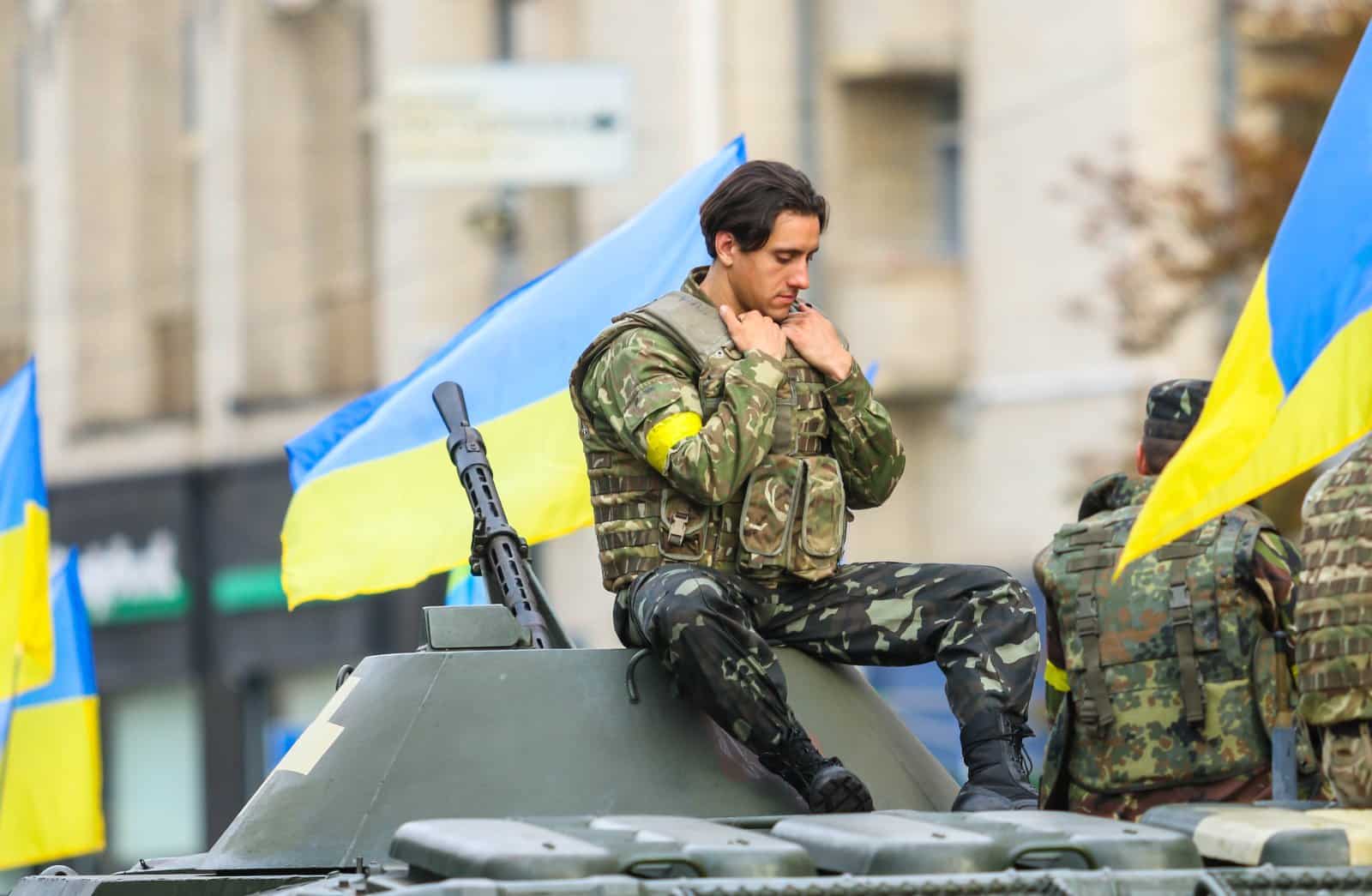
8. Unrest in Eastern Europe
The ongoing conflict in Ukraine has broader implications for safety in neighboring Eastern European countries. Review the latest geopolitical developments and travel advisories.

9. Health Infrastructure
Consider the health infrastructure of your destination; some rural areas in South America and Africa may have limited medical services. Prepare for emergencies by knowing where the nearest hospital or clinic is located.

10. Water Safety
In many parts of South Asia and Africa, tap water is not safe to drink. Always opt for bottled water and avoid ice in drinks.

11. Kidnapping Risks
Regions like the Sahel in Africa and parts of South America have high rates of kidnapping. Consider extra security measures and kidnap and ransom insurance.
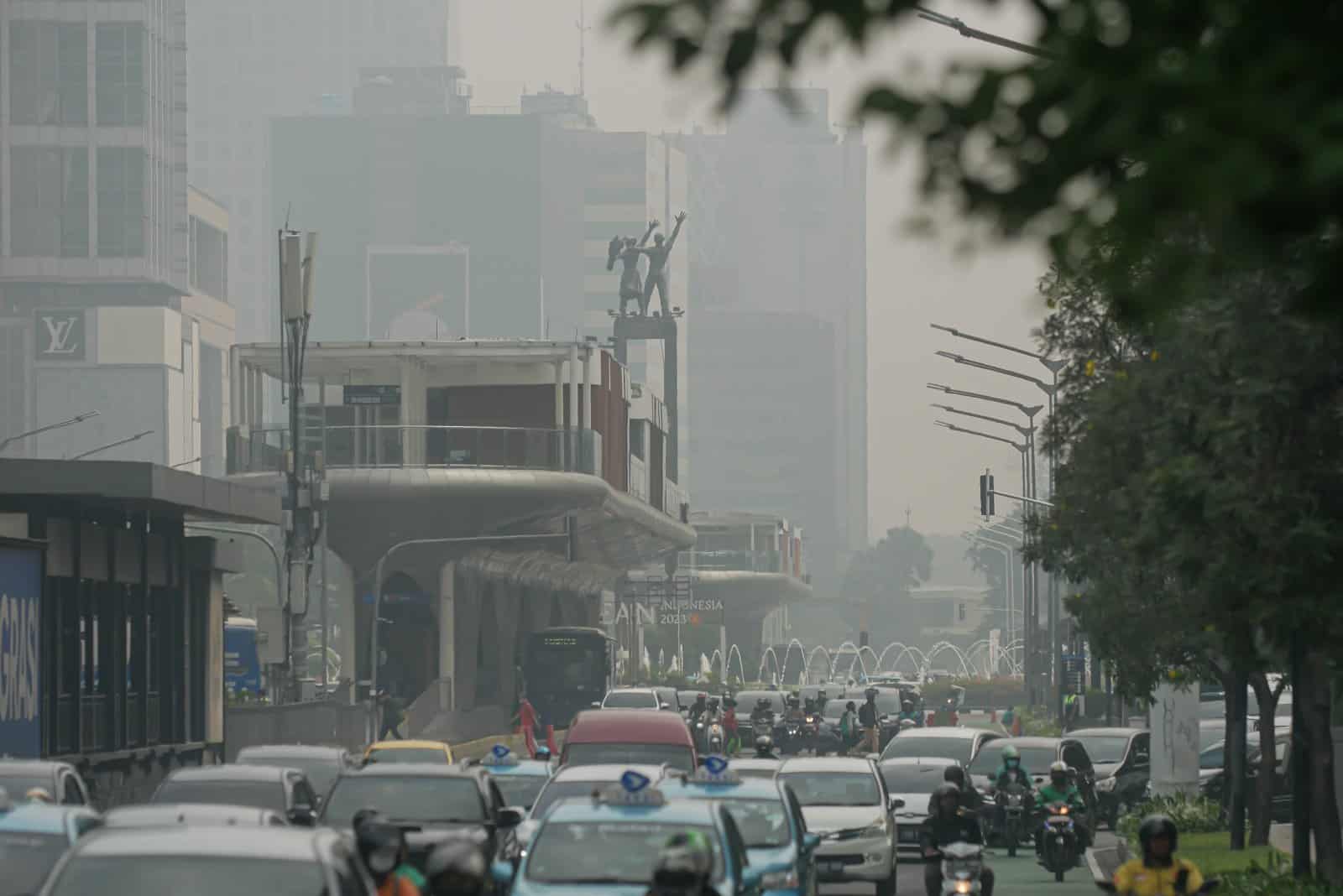
12. Air Quality Issues
Cities like Delhi, Beijing, and Jakarta suffer from severe air pollution. Travelers with respiratory issues should take necessary precautions.
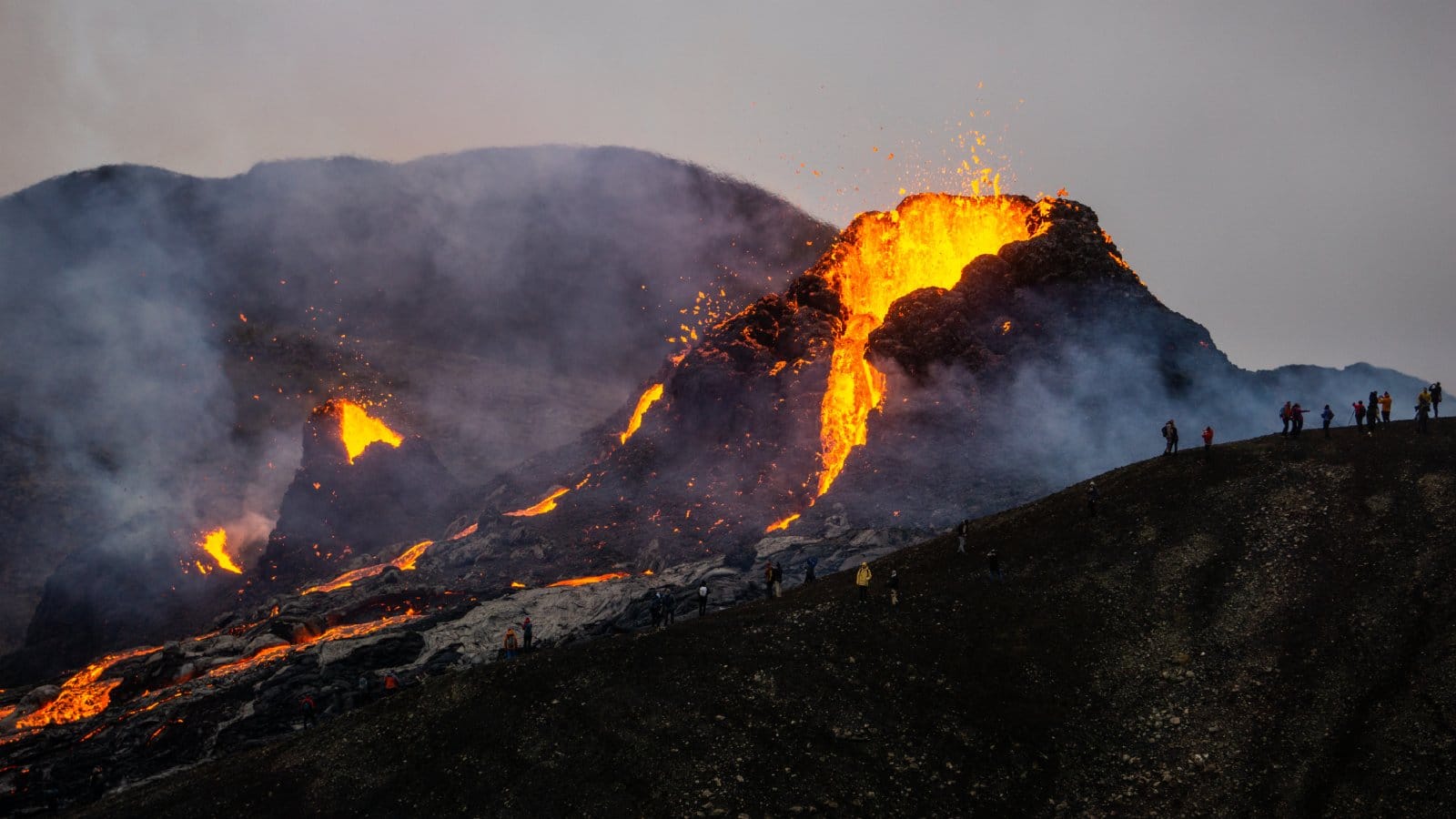
13. Volcanic Activity
Tourist destinations like Indonesia and Iceland are prone to volcanic eruptions, which can disrupt travel. Monitor volcanic activity through local news and geological surveys.

14. Wildlife Encounters
Destinations known for wildlife, such as Australia and parts of Africa, require caution due to the presence of potentially dangerous animals. Follow local guidelines to avoid unsafe encounters.

15. Drug Resistance
The rise of drug-resistant bacteria in regions like Southeast Asia demands caution with antibiotics. Ensure proper prescriptions and adherence to medical advice.
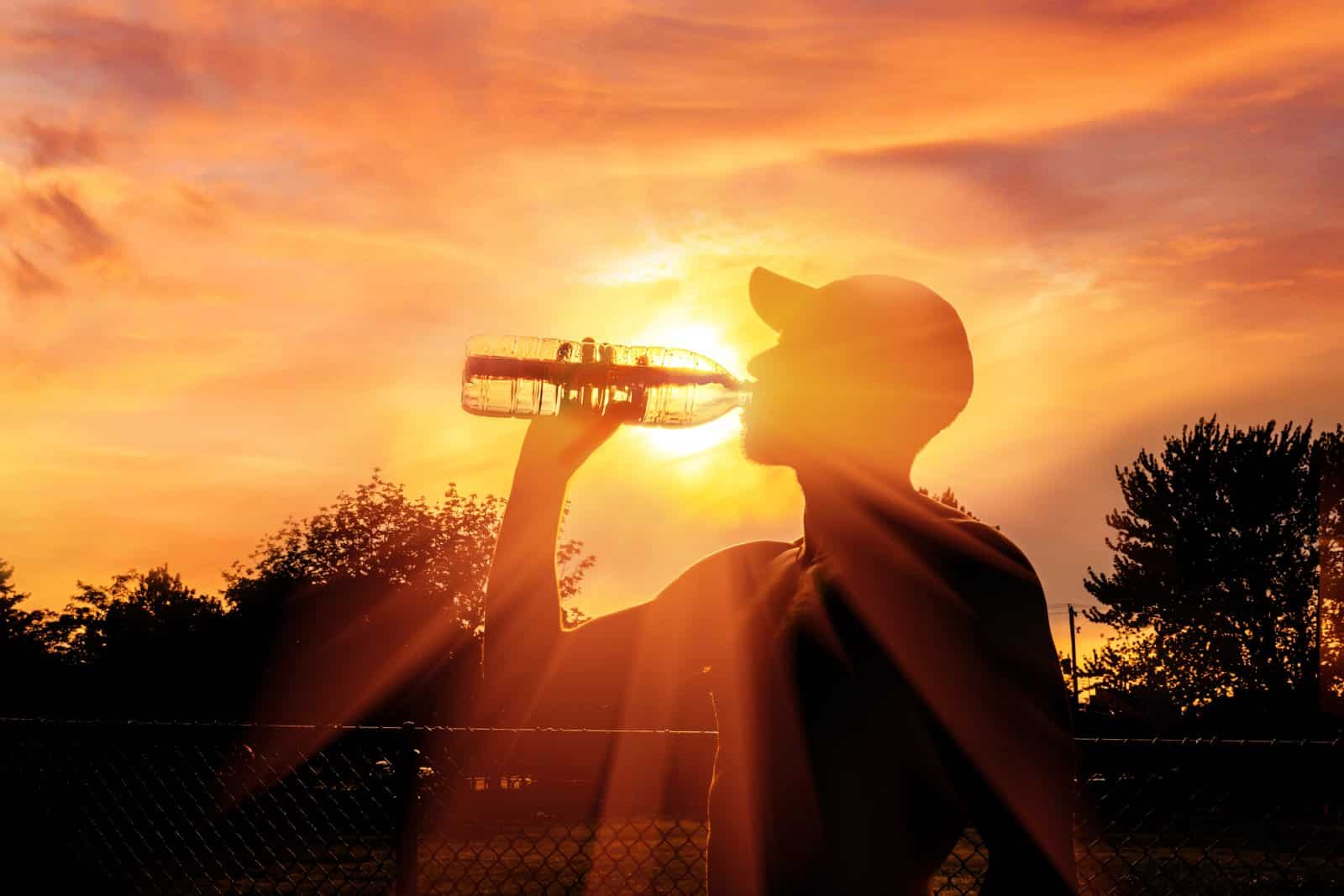
16. Heatwaves and Droughts
Extreme heat and droughts are becoming more common in places like Europe and the western United States. Stay hydrated and avoid strenuous outdoor activities during peak heat.

17. Cultural Sensitivities
Traveling to the Middle East or parts of Africa requires awareness of local customs and dress codes to avoid offending hosts. Research and respect local traditions and laws.
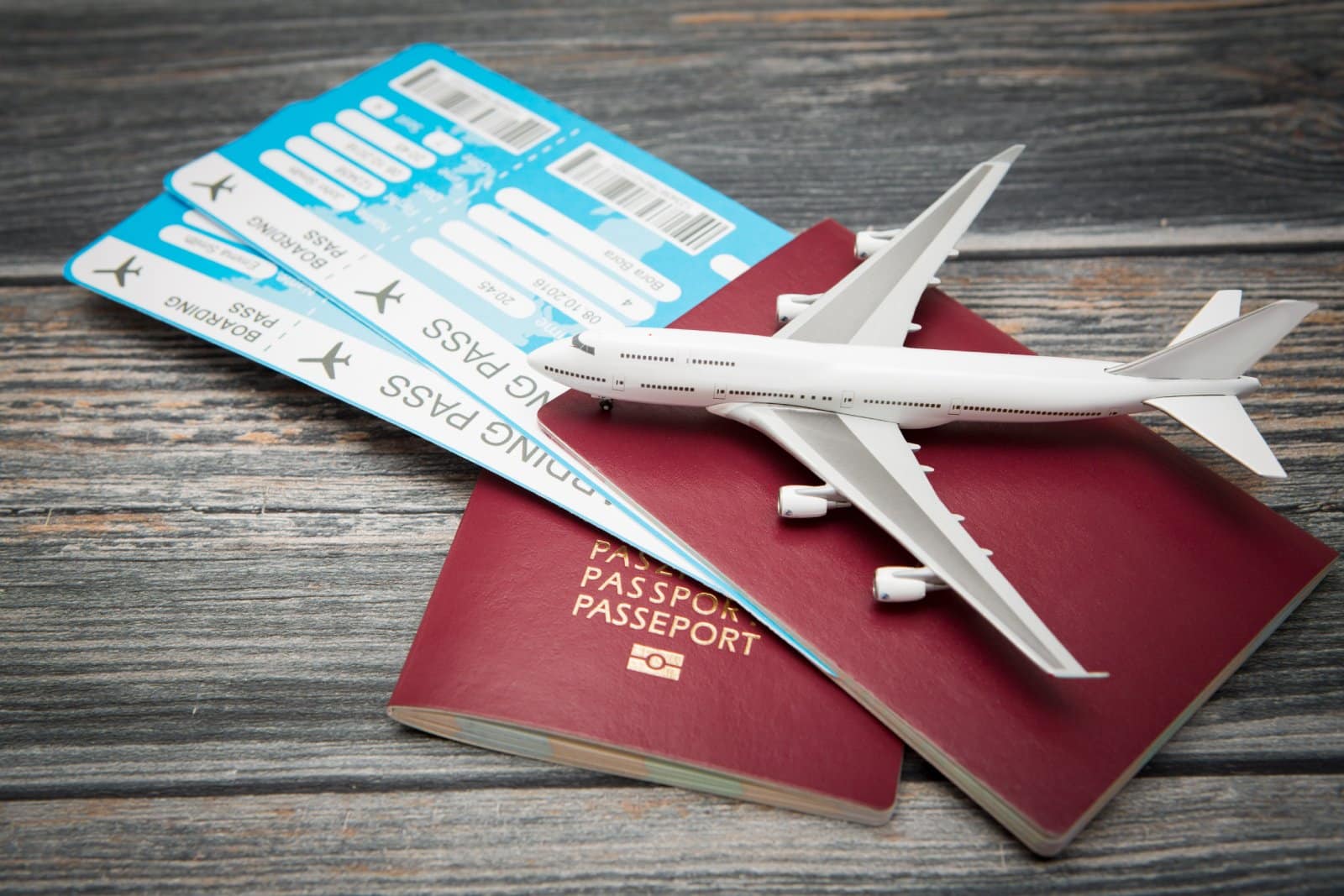
18. Border Closures
Sudden border closures can still occur due to political or health reasons. Always have a backup plan and keep your travel documents accessible.
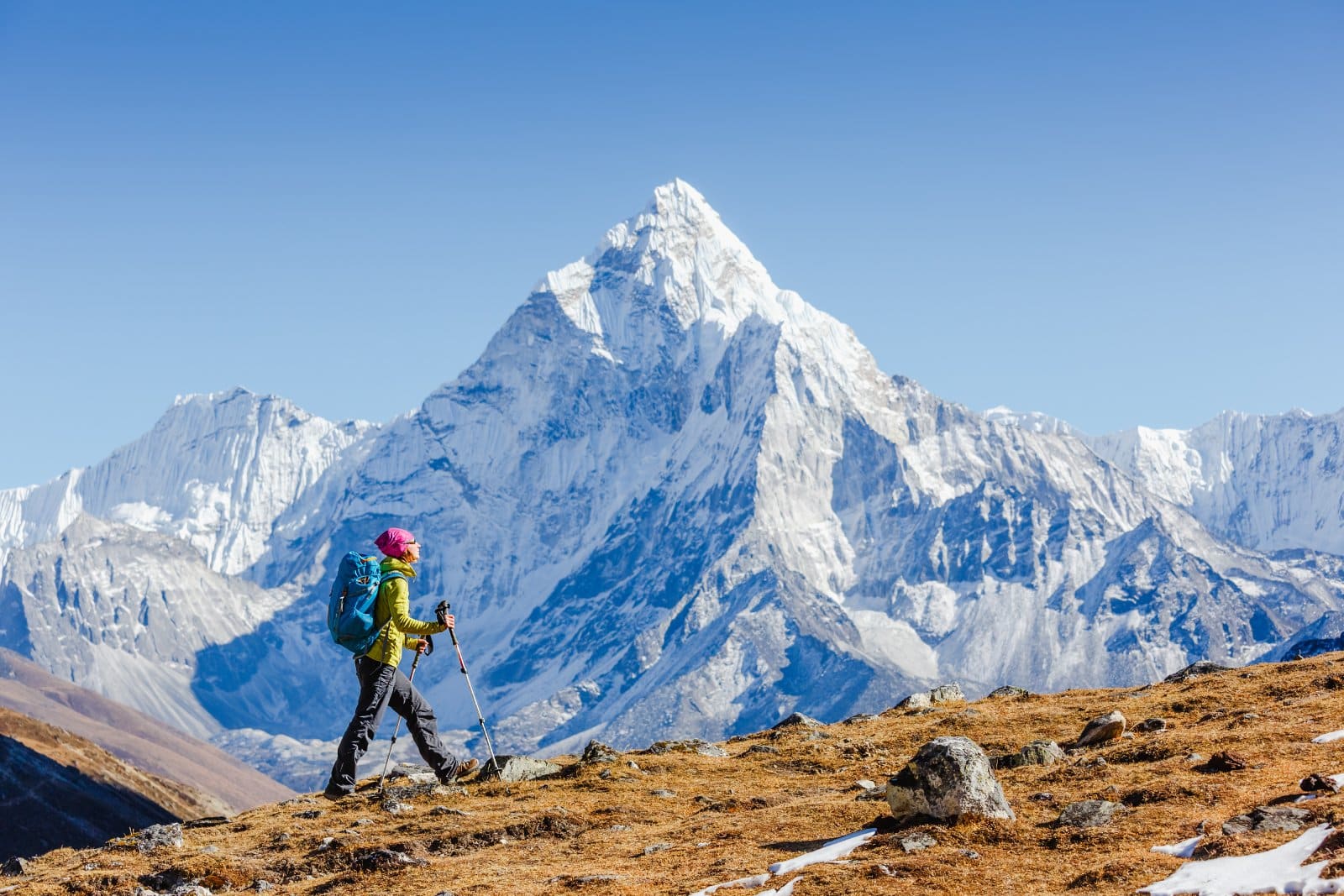
19. Adventure Travel Risks
High-risk activities like mountaineering in the Himalayas or diving in remote parts of the Pacific need thorough preparation and expert guidance. Always use reputable companies and check equipment before activities.
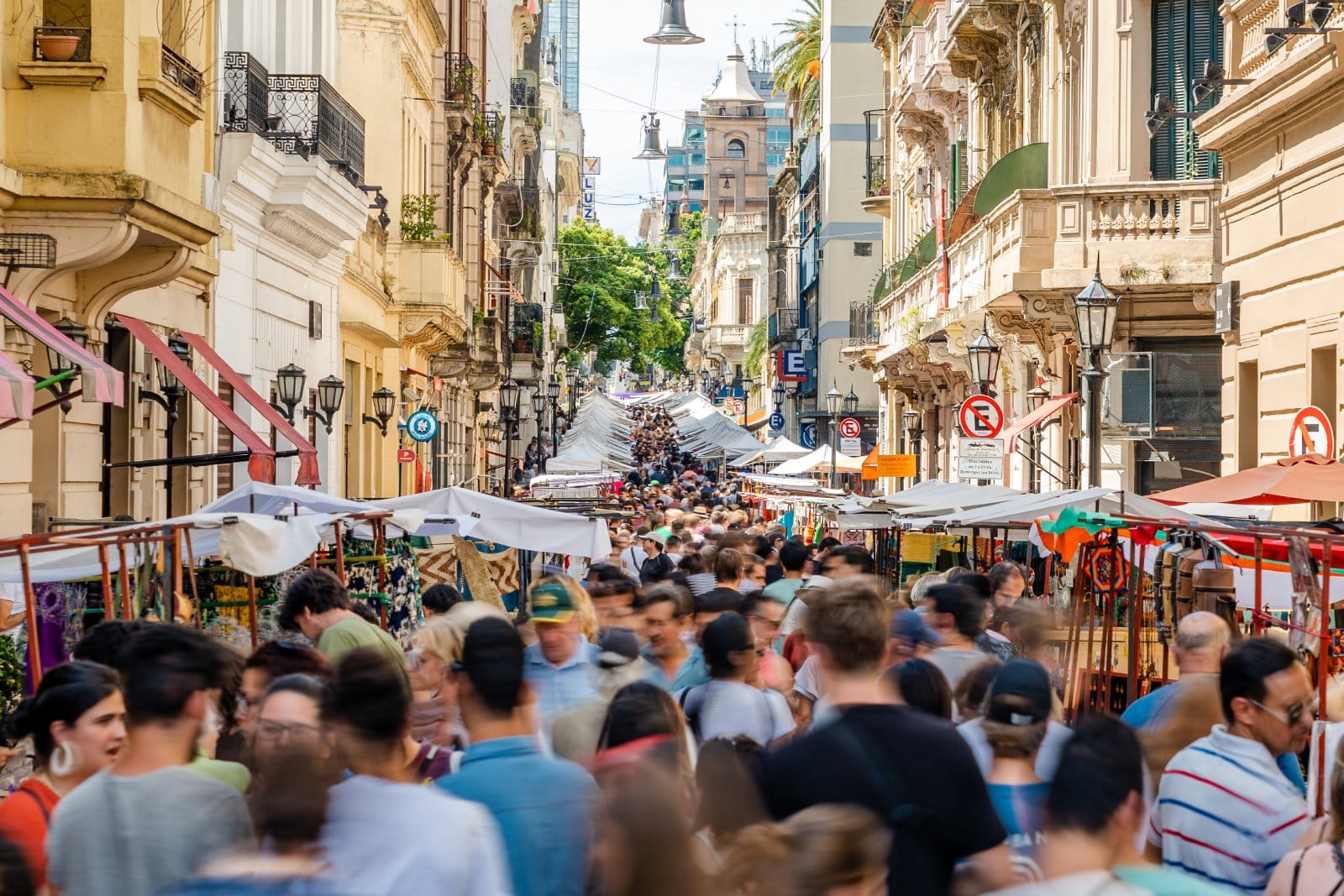
20. Economic Instability
Countries experiencing economic crises, such as Argentina or Turkey, may have fluctuating prices and availability of services. Plan financially for sudden changes and carry multiple forms of payment.

Navigate With Caution
As the world continues to open up in 2024, understanding and mitigating these risks are essential for a safe and enriching travel experience. Always plan ahead, stay informed, and consider both the rewards and risks of your travel choices.

Not All Tea Is Good for You: List of Teas to Avoid and to Stick To
Not all teas are healthy and some might actually harm your health with poor ingredients. But how can you tell the good from the bad? This guide aims to help you make informed choices without turning you into a tea expert overnight. Not All Tea Is Good for You: List of Teas to Avoid and to Stick To

America’s Spiritual Revolution: Turning Away from Christianity to Embrace Alternatives
As church attendance declines, Americans are exploring diverse spiritual paths, from stargazing druids to unconventional deities like Wi-Fi gods and extraterrestrials. Explore the quirky and sometimes controversial new religions capturing attention as people seek meaning beyond traditional Christianity. America’s Spiritual Revolution: Turning Away from Christianity to Embrace Alternatives
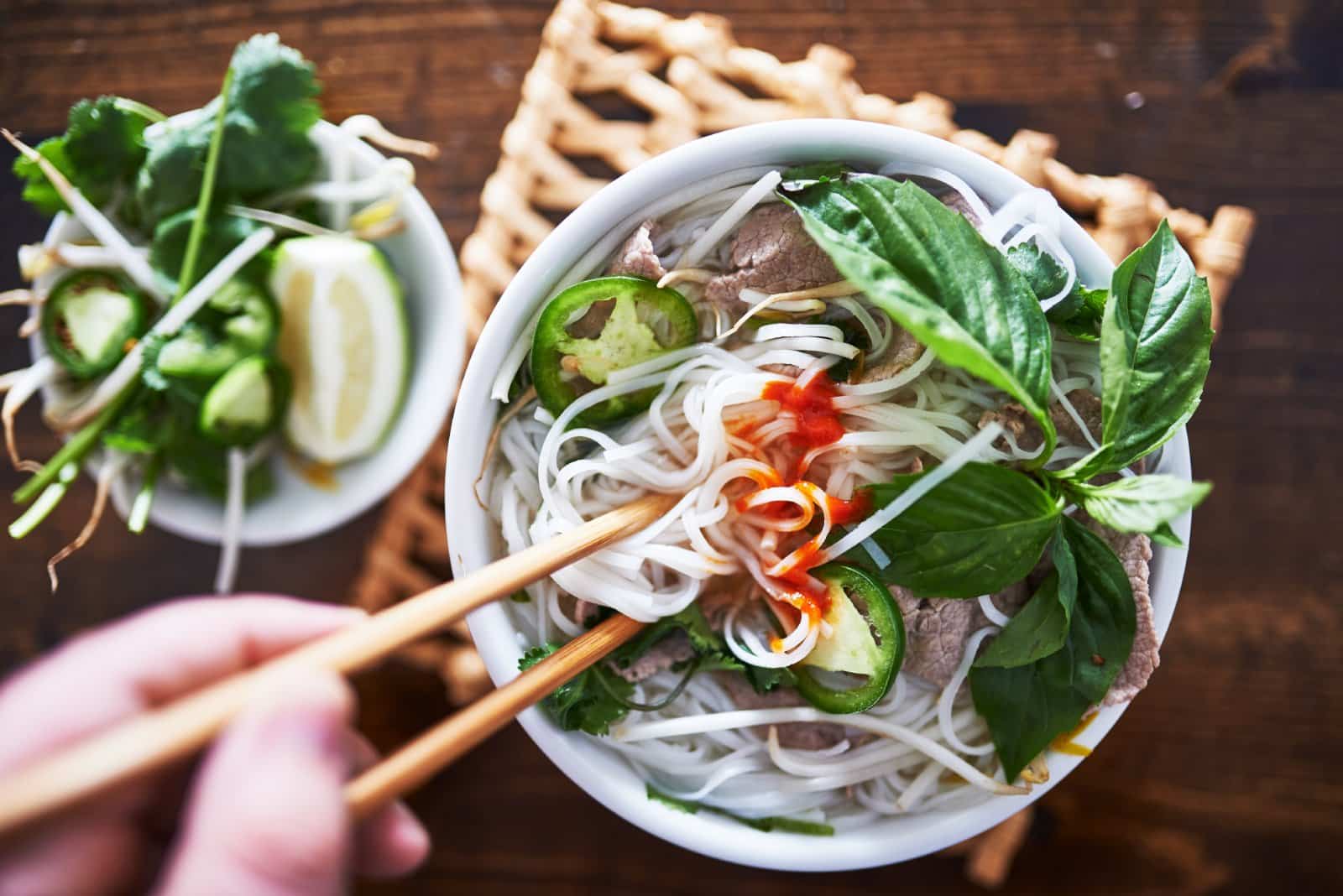
25 Must-Try Global Delicacies
From Bangkok’s bustling streets to Parisian cafes, every corner of the world offers something special for your taste buds. And you don’t have to travel far; even in the USA, you can find a world of flavors. Here are 25 global delicacies every foodie should try, including some local favorites! 25 Must-Try Global Delicacies

16 Affectionate Gestures to Keep the Romance Alive
Sustaining romance in a relationship needs deliberate actions and research-backed gestures to foster intimacy. Here are 16 evidence-based romantic gestures, with steps to integrate them into your relationship and revive the spark. 16 Affectionate Gestures to Keep the Romance Alive

21 Top Christian Attractions to Explore in the U.S.
The U.S. is rich in spiritual destinations, offering awe-inspiring sites for both believers and curious travelers. Explore the 21 most popular Christian attractions across the country, where architecture, history, and faith converge. 21 Top Christian Attractions to Explore in the U.S.
The post Travel 2024: Is It Safe to Explore the World Again? first appeared on Hello Positive Mindset .
Featured Image Credit: Shutterstock / Dmitry Molchanov.
For transparency, this content was partly developed with AI assistance and carefully curated by an experienced editor to be informative and ensure accuracy.
More for You
Could the Duke of Westminster’s wedding change a 300-year-old English law?
"I Texted My Dad To Immediately Pick Me Up": 23 People Are Recalling The Bizarre "House Rules" They Experienced At Someone Else's Home When They Were A Kid
The Supersized Weed That Is Very Dangerous In Your Yard
25 Beloved Movies We’ll Never Let Our Kids Watch
10 Affordable Compact Cars That Will Last 300,000 Miles
The 10 Most Dangerous Fruits in the World
We may have found a new telltale sign of alien life
“It was the best part I ever got”: The Dark Knight Star Michael Caine Was Furious Over One of His Best Roles That Landed Him an Oscar Nomination
Electric Trucks Operating Expenses Are Worse Than Diesel Trucks
The 1-Ingredient Upgrade for Better Cucumber Salads (It's Already in Your Pantry)
25 Incredible Movies Based on True Stories
Robert Plant and Alison Krauss are equal parts ribbing and respect ahead of summer tour
Which Vitamin Deficiency Causes Hair Loss?
Trump’s first Supreme Court appointee has once again broken from the conservative pack
Astronomers say we may live at the center of a cosmic void 2 billion light-years wide that defies the laws of cosmology
15 Things Boomers Frustratingly Got Totally Right
Harsh Truths: 12 Truths About Electric Vehicles No One Wants To Hear
Dean Jeffries' Coolest Custom Cars
Popular bankrupt retailer is reopening after abruptly closing stores
23 Employees Who Messed Up So Badly At Work, I Have NO Clue How They Got Away With It
Security Alert May 17, 2024
Worldwide caution, update may 10, 2024, information for u.s. citizens in the middle east.
- Travel Advisories |
- Contact Us |
- MyTravelGov |
Find U.S. Embassies & Consulates
Travel.state.gov, congressional liaison, special issuance agency, u.s. passports, international travel, intercountry adoption, international parental child abduction, records and authentications, popular links, travel advisories, mytravelgov, stay connected, legal resources, legal information, info for u.s. law enforcement, replace or certify documents.
Before You Go
Learn About Your Destination
While Abroad
Emergencies
Share this page:
Travel Advisory November 27, 2023
Tajikistan - level 2: exercise increased caution.
Reissued after periodic review with updates to risk indicators, Level 3 areas, and the “If you decide to travel” section.
Exercise increased caution in Tajikistan due to terrorism, unexploded landmines, and occasional violence near the border with Kyrgyzstan . Some areas have increased risk. Read the entire Travel Advisory.
Reconsider travel to :
- Within five miles of Tajikistan’s border with Afghanistan
- Gorno-Badakhshon Autonomous Oblast
Country Summary: Terrorist organizations are known to have a presence in the region and have targeted foreigners and local authorities in the past.
Terrorist attacks can happen with little or no warning, with terrorists targeting public areas such as tourist locations, transportation hubs, markets/shopping malls, restaurants, places of worship, school campuses, and government facilities.
Unexploded landmines and cluster munitions are a hazard along the Afghan-Tajik and Uzbek-Tajik borders, as well as in the Vakhsh and Rasht valleys. Heed land mine warning signs. Do not venture off the road into areas marked with red and white plastic tape. Avoid roadside ditches, shoulders, and unmarked trails. Never touch anything resembling unexploded munitions.
Be cautious when traveling within five miles of the Tajikistan-Kyrgyzstan border . There have been several instances of armed skirmishes between Tajik and Kyrgyz border guards over the past five years, particularly in the Isfara area and the Vorukh enclave.
Read the country information page for additional information on travel to Tajikistan.
If you decide to travel to Tajikistan:
- Have a plan to depart Tajikistan which does not rely on U.S. government assistance.
- Keep a low profile.
- Be aware of your surroundings.
- Monitor local media for breaking events and be prepared to adjust your plans.
- Do not touch unknown metal objects and avoid traveling off well-used roads, tracks, and paths due to risk of unexploded ordnance.
- Enroll in the Smart Traveler Enrollment Program ( STEP ) to receive Alerts and make it easier to locate you in an emergency.
- Review the Country Security Report for Tajikistan.
- Follow the Department of State on Facebook and Twitter .
- Visit the CDC page for the latest Travel Health Information related to your travel.
- Prepare a contingency plan for emergency situations. Review the Traveler’s Checklist .
Border Areas with Afghanistan – Level 3: Reconsider Travel
Reconsider travel within five miles of Tajikistan's border with Afghanistan due to terrorism. The current political situation in Afghanistan creates a challenging and unpredictable environment in the border areas due to evolving security conditions. Additionally, the land border between Tajikistan and Afghanistan has been closed since the Taliban takeover of Afghanistan in 2021. Travel in the mountainous region along the Afghan border can be dangerous due to the proximity of militant groups across the border. U.S. citizens should remain alert and avoid activities that develop predictable patterns of movement. If documenting travel on social media, please ensure your privacy settings are appropriately set.
Gorno-Badakhshon Autonomous Oblast (GBAO)– Level 3: Reconsider Travel
The challenging and unpredictable environment in northern Afghanistan has the potential to spill over insecurity into neighboring Tajikistan’s GBAO region. GBAO is a restricted region for non-Tajik citizens, requiring a travel permits from Tajik authorities. Violent clashes with security forces erupted in GBAO in recent years, and the government of Tajikistan can suspend travel permits for non-Tajik citizens on short notice.
Please visit our website for information on Travel to High-Risk Areas .
Embassy Messages
View Alerts and Messages Archive
Quick Facts
At least six months from the date of entry.
At least two blank pages.
Required for stays longer than 30 days. See Entry, Exit, and Visa Requirements below for more information about visa-free entry.
$3,000 USD.
Embassies and Consulates
U.s. embassy dushanbe.
109A, Ismoili Somoni Avenue Dushanbe, Tajikistan 734019 Telephone: 992-37-229-2000 or 992-37-229-2300 (consular direct line) Emergency After-Hours Telephone: 992-98-580-1032 Fax: 992-37-229-2050 Email: [email protected]
Destination Description
Learn about the U.S. relationship to countries around the world.
Entry, Exit and Visa Requirements
COVID-19 Requirements: There are no COVID-related entry requirements for U.S. citizens in Tajikistan.
Requirements for entry:
- Passport valid for at least six months with at least two blank pages for entry and exit stamps.
- Visa if you plan to stay longer than 30 days or are traveling for a non-tourist purpose.
- Visa support letter if you are traveling on a non-tourist visa.
Visa-free entry: Beginning January 1, 2022, U.S. citizens are eligible for visa-free entry into Tajikistan for stays lasting no more than 30 days (non-extendable), regardless of the purpose of travel. Registration within 10 days of arrival at the nearest Department of Visas and Registration of the Ministry of Internal Affairs (OVIR) is required . Registration costs 180 Tajik Somoni and takes up to three business days. Failure to register or loss of the registration form can result in fines and delay your departure. Tourists should seek registration assistance from their hotel or tour operator.
In emergency situations (i.e. positive PCR test), the Main Consular Department of the Ministry of Foreign Affairs (MFA) can provide an emergency exit visa for a one-month period upon submission of a formal request letter, a copy of the positive PCR test, and a copy of the original itinerary.
Travelers planning to spend more than 30 days in Tajikistan should obtain a tourist e-visa online or a T-visa from the Tajik Embassy to the United States.
Tourist e-visas: Tajikistan offers two types of e-visas: single entry and multiple entry. Visas are issued for a period of 90 days and are valid for stays up to 60 days. The e-visa is non-extendable and you can apply for it only if you are outside of Tajikistan. Registration with the Department of Visas and Registration of the Ministry of Internal Affairs (OVIR) is not required when admitted using an e-visa.
Refer to the Embassy of Tajikistan’s website for further visa information.
Non-tourist visas: Applications for non-tourist purposes of travel, including to visit family or friends (XC1-visa), to conduct business (K-visa), or to attend an educational facility (O-visa), can be submitted online to the Tajik Ministry of Foreign Affairs (MFA). Supporting documents, including a Tajik visa support letter, are required. Visa validities and fees vary depending on purpose of travel. A personal appearance at a Tajik embassy or consulate may be required depending on the visa category.
Tajik visa support letters are required for all non-tourist visas. To obtain a visa support letter, the inviting organization submits a request to the MFA. When invited by a private Tajik resident (e.g., a friend or relative), the inviting party requests a notification letter from the Department of Visas and Registration of the Ministry of Internal Affairs (OVIR). Any required supporting documents and the visa support letter should be submitted to the MFA Consular Department in Tajikistan by the inviting party.
Some non-tourist visa categories allow for the visa to be issued upon arrival, eliminating the need to appear in person at a Tajik embassy or consulate. This upon-arrival request must be selected at the time the application is submitted online and an additional fee will be required.
Tajik visa registration stamps are required for non-tourist stays more than two days. Most travelers must register within three days of entering the country at the nearest Department of Visas and Registration of the Ministry of Internal Affairs (OVIR). Journalists, official travelers, and employees of international organizations must register with the Ministry of Foreign Affairs. Failure to register can result in fines and delay your departure.
Border Zones : Tajik authorities have implemented restrictions on travel to areas near Tajikistan’s border with other countries. The Embassy recommends that U.S. citizens provide an itinerary for intended travel to any border zone to the Department of Visas and Registration of the Ministry of Internal Affairs (OVIR) to obtain prior permission and information about any restrictions.
Exiting Tajikistan: Be sure to leave Tajikistan before your visa or visa-free admission expires or you may be required to pay a fine as well as pay for an exit visa.
Departure options from Tajikistan are limited. To maximize departure options, obtain extended visas for travel to countries with reliable connections to Tajikistan, including Kazakhstan, Kyrgyzstan, China, and Russia.
Transit Visas to Russia: When traveling from Tajikistan through Russia to a third country – including plane changes – you must have a transit visa for Russia. You cannot get a Russian visa at the airport. If you arrive in Russia without the appropriate visa, authorities may restrict you from future travel to Russia. Refer to information on Travel.State.Gov for visa requirements for Russia .
Dual Nationality: Tajikistan does not recognize dual citizenship with the United States. If you are a U.S.-Tajik dual citizen traveling on your U.S. passport, be sure to have a valid Tajik visa in your U.S. passport. Otherwise, you may encounter problems with immigration authorities upon your departure from Tajikistan.
U.S.-Tajik dual citizens, including U.S. citizen minor children, who are planning to remain in Tajikistan for an extended period of time, are also required to have a valid Tajik visa. Please note: fines for not maintaining a valid visa accumulate quickly and can be very expensive. U.S.-Tajik dual citizens will be required to pay any outstanding fines before exiting the country.
HIV/AIDS Information: Some HIV/AIDS entry restrictions exist for visitors and foreign residents of Tajikistan. If you are applying to be in Tajikistan for more than 90 days, you must present a medical certificate with your application confirming that you are HIV-free. Due to frequent policy changes, verify this information with the Embassy of Tajikistan before traveling.
Additional Information: Find information on dual nationality , the prevention of international child abduction , and customs regulations on Travel.State.gov.
Contact information for the Embassy of the Republic of Tajikistan :
1005 New Hampshire Avenue Washington, DC 20037 Phone: 202-223-6090 Phone: 202-223-2666 (Consular Issues) Fax: 202-223-6091 E-mail: [email protected] (Consular Issues)
Safety and Security
Potential for Terrorist Activity: Terrorist organizations, including ISIS, have a presence in the region, mostly by attracting sympathizers and followers through online platforms and social media. Terrorists have planned and carried out attacks against foreigners and government entities, such as law enforcement and security services.
Tajik authorities maintain a high level of security to thwart terrorist attacks. This could lead terrorists to seek softer targets including facilities where U.S. citizens and other foreigners congregate such as residential areas; clubs and restaurants; markets; places of worship; schools; hotels; outdoor recreational events, including popular hiking areas; and resorts. U.S. citizens should avoid predictable patterns of movement and revealing their personal information and location on social media. If using social media, ensure your privacy settings are appropriately set.
U.S. Embassy Dushanbe employs heightened security precautions. U.S. citizens should report any unusual activity to local authorities and then inform the Embassy.
Border areas with Afghanistan: Reconsider travel near and along Tajikistan’s border with Afghanistan due to terrorism. The current political situation in Afghanistan creates a challenging and unpredictable environment in the border areas due to evolving security conditions. Additionally, the land border between Tajikistan and Afghanistan has been closed since the Taliban takeover of Afghanistan in 2021. Travel in the mountainous region along the Afghan border can be dangerous due to the proximity of militant groups across the border. Be vigilant when camping, biking, or sheltering in the open after dark. U.S. citizens should remain alert and avoid activities that develop predictable patterns of movement. If documenting travel on social media, please ensure your privacy settings are appropriately set.
Restricted zone of Gorno-Badakhshan: Reconsider travel to Gorno-Badakhshan Autonomous Oblast (GBAO). The current political situation in Afghanistan creates a challenging and unpredictable environment in the border areas due to evolving security conditions. Do not enter the Gorno-Badakhshan (GBAO) region without official permission. Persons violating the law may be detained by Tajik law enforcement. Violent clashes with security forces erupted in GBAO in recent years, and the government of Tajikistan can suspend travel permits for non-Tajik citizens on short notice. To enter this restricted zone, request a special permit from Tajik embassies/consulates or from the Ministry of Foreign Affairs (MFA) or the Department of Visas and Registration of the Ministry of Internal Affairs (OVIR) registration department if applying within Tajikistan. Submit authorization requests at least two weeks in advance of your trip. If granted, authorities will annotate your passport with the names of the settlements and cities you are authorized to visit.
If applying for an e-visa for tourism, you can apply for official permission to visit GBAO at the same time, for an additional fee. Please visit the Republic of Tajikistan’s e-Visa Application webpage for information on electronic visas to Tajikistan and instructions for a GBAO permit.
Border areas with Kyrgyzstan: Exercise caution in areas near and along Tajikistan’s border with Kyrgyzstan. Several instances of armed skirmishes between Tajik and Kyrgyz border guards have occurred, particularly in the Isfara and Vorukh districts.
Unexploded landmines and cluster munitions are a hazard along the Afghan-Tajik and Uzbek-Tajik borders, as well as in the Vakhsh and Rasht valleys. Heed land mine warning signs. Do not venture off the road into areas marked off with red and white plastic tape. Avoid roadside ditches, shoulders, and unmarked trails. Never touch anything resembling unexploded munitions.
Crime: Criminal activity in Dushanbe is moderate. Incidents are not usually violent, but muggings, armed robberies, and pick-pocketing do occur. Police do not provide adequate or immediate assistance and often will not open minor or routine cases.
Other criminal activity, such as narcotics trafficking, can result in violence.
Travel in pairs, especially at night. Sexual harassment of unaccompanied women is very common. Carry a copy of your passport (separate from your wallet) with you at all times.
See the Department of State and the FBI webpages for information on scams.
Victims of Crime: U.S. citizen victims of crime, including sexual assault and domestic violence, should contact the police or head to the nearest hospital to seek medical attention and report the crime. Please also contact the U.S. Embassy at (992)-37-229-2000.
The local equivalent to the 911 emergency line in Tajikistan is 01 for fire, 02 for police, and 03 for ambulance service, and in Dushanbe, dial 235-4545 for the State Traffic Inspectorate (GAI) police for traffic accidents.
Remember that local authorities are responsible for investigating and prosecuting crimes.
See our webpage on help for U.S. victims of crime overseas .
· Replace a lost or stolen passport.
· Help you find appropriate medical care facilities.
· Put you in contact with appropriate police authorities.
· Contact relatives or friends with your written consent.
· Explain the local criminal justice process in general terms.
· Provide a list of local attorneys.
· Provide information on victim’s compensation programs in the U.S.
Tourism: No formal tourism industry infrastructure is in place in most locations. Tourists are considered to be participating in activities at their own risk. Emergency response and subsequent appropriate medical treatment is for the most part not available in-country. U.S. citizens are encouraged to purchase traveler’s insurance for on-the-ground medical coverage as well as medical evacuation insurance .
Demonstrations and Protests: Both are rare in Tajikistan; however, due to security reasons, U.S. citizens are advised not to participate.
Local Laws & Special Circumstances
Criminal Penalties: You are subject to local laws. If you violate local laws, even unknowingly, you may be expelled, arrested, or imprisoned.
Furthermore, some laws are also prosecutable in the United States, regardless of local law. For examples, see our website on crimes against minors abroad and the Department of Justice website.
Arrest Notification: If you are arrested or detained, ask police or prison officials to notify the U.S. Embassy immediately. See our webpage for further information.
- Penalties for possessing, using, or trafficking in illegal drugs are severe. Expect long jail sentences and heavy fines if you are convicted.
- Tajikistan maintains zero tolerance for alcohol-related incidents.
- It is illegal to take pictures of certain buildings. Ask before taking photographs of anything of possible military or security interest.
- Always carry a copy of your U.S. passport, Tajik visa, and visa registration, since local police frequently conduct document inspections. Check your visa and registration validity dates regularly, and renew them before they expire.
Currency and Banking: Tajikistan is a cash-only economy. Credit cards are rarely accepted, and traveler’s checks are not used.
International banking services are limited. Some ATM machines are available and dispense local currency. Tajikistan’s national currency is the Somoni, which is convertible to USD.
Earthquakes: Tajikistan is an earthquake-prone country. Visitors to Tajikistan should evaluate their own emergency preparedness and plan accordingly. For information on natural disaster preparedness, see U.S. Federal Emergency Management Agency (FEMA) .
Faith-Based Travelers: See our following webpages for details:
- Faith-Based Travel Information
- International Religious Freedom Report – see country reports
- Human Rights Report – see country reports
- Hajj Fact Sheet for Travelers
- Best Practices for Volunteering Abroad
LGBTI Travelers: There are no legal restrictions on same-sex sexual relations or the organization of LGBTI events, although Tajik society is generally hostile to LGBTI interests. See our LGBTI Travel Information page and section 6 of our Human Rights report for further details.
Travelers Who Require Accessibility Assistance: Buildings, public transportation, communication, and road crossings are inaccessible.
Students: See our Students Abroad page and FBI travel tips .
Women Travelers: See our travel tips for Women Travelers .
Medical care is limited and significantly below U.S. standards, with severe shortages of basic medical supplies, including disposable needles, anesthetics, prescriptions drugs, and antibiotics.
For emergency services in Tajikistan, dial 03 (103 from cell phone).
Ambulance services are (select one or more as appropriate):
- Not present throughout the country or are unreliable in most areas except in Dushanbe.
- Not equipped with state-of-the-art medical equipment.
- Injured or seriously ill travelers may prefer to take a taxi or private vehicle to the nearest major hospital rather than wait for an ambulance.
COVID-19 Requirements for Entry: There are no COVID-related entry requirements for U.S. citizens.
COVID-19 Testing:
- Gemotest Medical Laboratory (48-703-13-13) provides same-day Russian language test results, as well as English language certificate with a QR code confirming the validity of the test results at a cost of 123 TJS (approximately $13) paid by the patient. Travelers have the option to receive the results and certificate through email or download them from the laboratory’s official website, or collect a physical copy from the facility.
- Diamed Clinic (44-601-90-16) provides same-day English language test results at a cost of 130 TJS (approximately $13) paid by the patient. Travelers will need to collect a physical copy of their results from the clinic.
- Prospekt Medical Clinic (48-702-44-00) charges 403 TJS (approximately $40) paid by the patient with the next-day results. The clinic provides the services during weekdays and is closed on Saturdays and Sundays. Travelers will need to collect a physical copy of their results from the clinic.
COVID-19 Vaccines: The COVID-19 vaccine is available for U.S. citizens to receive in Tajikistan. The U.S. Embassy in Dushanbe is aware that Pfizer, Moderna, AstraZeneca, and Sinovac-CoronaVac COVID-19 vaccines are available at Prospekt Medical Clinic (48-702-44-00), subject to availability. Please contact the clinic directly for information about cost and availability.
Due to extremely limited vaccine availability, we strongly recommend that travelers complete their COVID-19 vaccination before traveling to Tajikistan.
Visit the FDA's website to learn more about FDA-approved vaccines in the United States.
There have been outbreaks of the following diseases:
- Water-borne diseases (such as Giardia)
- Hemorrhagic Fever
- Hepatitis A, B & C (frequently transmitted through medical and dental procedures)
- Malaria – in the southern region at Afghan border
- Tuberculosis (including multidrug-resistant (MDR-TB) and extensively drug-resistant (XDR-TB) varieties)
- Typhoid – in Dushanbe and the southern provinces of Khatlon
- Chicken Pox
Drink bottled or thoroughly boiled water while in Tajikistan. Avoid contact with street dogs in urban areas.
Pollution levels in Tajikistan are reported online at AirNow.gov . Exercise caution and adjust your outdoor activities on days when pollution levels are elevated.
We do not pay medical bills. Be aware that U.S. Medicare does not apply overseas.
Medical Insurance: Make sure your health insurance plan provides medical coverage in Tajikistan. Care providers in Tajikistan are not able to accept credit cards; therefore, providers only accept cash payments. See our webpage for more information on insurance overseas.
We strongly recommend supplemental insurance to cover medical evacuation due to inability of local medical providers to address many urgent-care situations.
Prescriptions: If traveling with prescription medication, check with the Government of Tajikistan’s website to ensure that the medication is legal in Tajikistan. Always carry your prescription medication in original packaging, along with your doctor’s prescription.
Vaccinations: Be up-to-date on all vaccinations recommended by the U.S. Centers for Disease Control and Prevention.
Further health information:
- World Health Organization
- U.S. Centers for Disease Control and Prevention (CDC)
Travel and Transportation
Road Conditions and Safety: Travel is difficult and unreliable. Neighboring countries sometimes unilaterally close borders, many border crossing points are not open to foreigners, and some borders are poorly delineated and even mined. Armed police or military checkpoints can make road travel outside Dushanbe more difficult.
- Some of the most common dangers encountered in Tajikistan are related to poor road infrastructure and natural events such as rock slides and avalanches, particularly in winter. Exercise caution on rural or mountainous roads, especially in underpopulated areas.
- Drivers with non-Tajik government-issued plates may run into problems crossing the Tajik-Uzbek border and can also expect to be stopped by police often in Dushanbe.
- Only travel by car during the day and on routes you know. Travel in the mountainous region along the Afghan border can be dangerous, even during daylight hours.
- Car accidents and erratic driving are common. Pedestrians tend to “jaywalk” or walk along highways without paying attention to traffic.
- Public transportation in the city is often overcrowded and not always safe. Bus service between major cities is unreliable.
- The State Traffic Inspectorate (GAI, or in Tajiki, BDA) maintains checkpoints in cities and along highways. The GAI frequently stops vehicles to inspect vehicles and driver documents. The government will not register vehicles with darkly tinted windows.
- Traffic police are notorious for randomly pulling over cars and exacting bribes. In Dushanbe, luxury cars and those with government license plates routinely speed past police, sometimes on the wrong side of the road and through stoplights, while other cars are flagged down for “document checks.”
Winter Road Travel: Please exercise caution and limit winter travel to Tajikistan’s mountain regions. Avalanches are common. Don’t attempt to travel over closed mountain passes. Roads are often not well maintained. Please see the Ministry of Tajikistan's website for the most up-to-date information.
Land Mines : Land mines and cluster munitions are a hazard along the Afghan-Tajik and Uzbek-Tajik borders, as well as in the Vakhsh and Rasht valleys. Heed land mine warning signs. Do not venture off the road into areas marked off with red and white plastic tape. Never touch anything resembling unexploded munitions.
See our Road Safety page for more information.
Aviation Safety Oversight: As there is no direct commercial air service to the United States by carriers registered in Tajikistan, the U.S. Federal Aviation Administration (FAA) has not assessed the government of Tajikistan’s Civil Aviation Authority for compliance with International Civil Aviation Organization (ICAO) aviation safety standards. Further information may be found on the FAA’s safety assessment page .
For additional travel information
- Enroll in the Smart Traveler Enrollment Program (STEP) to receive security messages and make it easier to locate you in an emergency.
- Call us in Washington, D.C. at 1-888-407-4747 (toll-free in the United States and Canada) or 1-202-501-4444 (from all other countries) from 8:00 a.m. to 8:00 p.m., Eastern Standard Time, Monday through Friday (except U.S. federal holidays).
- See the State Department’s travel website for the Worldwide Caution and Travel Advisories .
- Follow us on Twitter and Facebook .
- See traveling safely abroad for useful travel tips.
For additional IPCA-related information, please see the International Child Abduction Prevention and Return Act (ICAPRA) report.
Travel Advisory Levels
Assistance for u.s. citizens, tajikistan map, learn about your destination, enroll in step.

Subscribe to get up-to-date safety and security information and help us reach you in an emergency abroad.
Recommended Web Browsers: Microsoft Edge or Google Chrome.
Check passport expiration dates carefully for all travelers! Children’s passports are issued for 5 years, adult passports for 10 years.
Afghanistan
Antigua and Barbuda
Bonaire, Sint Eustatius, and Saba
Bosnia and Herzegovina
British Virgin Islands
Burkina Faso
Burma (Myanmar)
Cayman Islands
Central African Republic
Cote d Ivoire
Curaçao
Czech Republic
Democratic Republic of the Congo
Dominican Republic
El Salvador
Equatorial Guinea
Eswatini (Swaziland)
Falkland Islands
France (includes Monaco)
French Guiana
French Polynesia
French West Indies
Guadeloupe, Martinique, Saint Martin, and Saint Barthélemy (French West Indies)
Guinea-Bissau
Isle of Man
Israel, The West Bank and Gaza
Liechtenstein
Marshall Islands
Netherlands
New Caledonia
New Zealand
North Korea (Democratic People's Republic of Korea)
Papua New Guinea
Philippines
Republic of North Macedonia
Republic of the Congo
Saint Kitts and Nevis
Saint Lucia
Saint Vincent and the Grenadines
Sao Tome and Principe
Saudi Arabia
Sierra Leone
Sint Maarten
Solomon Islands
South Africa
South Korea
South Sudan
Switzerland
The Bahamas
Timor-Leste
Trinidad and Tobago
Turkmenistan
Turks and Caicos Islands
United Arab Emirates
United Kingdom
Vatican City (Holy See)
External Link
You are about to leave travel.state.gov for an external website that is not maintained by the U.S. Department of State.
Links to external websites are provided as a convenience and should not be construed as an endorsement by the U.S. Department of State of the views or products contained therein. If you wish to remain on travel.state.gov, click the "cancel" message.
You are about to visit:
Advertisement
Supported by
Countries Fail to Agree on Treaty to Prepare the World for the Next Pandemic
Negotiators plan to ask for more time. Among the sticking points are equitable access to vaccines and financing to set up surveillance systems.
- Share full article

By Apoorva Mandavilli
Countries around the globe have failed to reach consensus on the terms of a treaty that would unify the world in a strategy against the inevitable next pandemic, trumping the nationalist ethos that emerged during Covid-19.
The deliberations, which were scheduled to be a central item at the weeklong meeting of the World Health Assembly beginning Monday in Geneva, aimed to correct the inequities in access to vaccines and treatments between wealthier nations and poorer ones that became glaringly apparent during the Covid pandemic.
Although much of the urgency around Covid has faded since the treaty negotiations began two years ago, public health experts are still acutely aware of the pandemic potential of emerging pathogens, familiar threats like bird flu and mpox, and once-vanquished diseases like smallpox.
“Those of us in public health recognize that another pandemic really could be around the corner,” said Loyce Pace, an assistant secretary at the Department of Health and Human Services, who oversees the negotiations in her role as the United States liaison to the World Health Organization.
Negotiators had hoped to adopt the treaty next week. But canceled meetings and fractious debates — sometimes over a single word — stalled agreement on key sections, including equitable access to vaccines.
The negotiating body plans to ask for more time to continue the discussions.
“I’m still optimistic,” said Dr. Jean Kaseya, director general of Africa Centers for Disease Control and Prevention. “I think the continent wants this agreement. I think the world wants this agreement.”
Once adopted, the treaty would set legally binding policies for member countries of the W.H.O., including the United States, on surveillance of pathogens, rapid sharing of outbreak data, and local manufacturing and supply chains for vaccines and treatments, among others.
Contrary to rhetoric from some politicians in the United States and Britain , it would not enable the W.H.O. to dictate national policies on masking, or use armed troops to enforce lockdowns and vaccine mandates.
Next week’s deadline was self-imposed, and some public health experts have said it was far too ambitious — most treaties take many years — for such a complex endeavor. But negotiators were scrambling to ratify the treaty before elections in the United States and multiple European countries.
“Donald Trump is in the room,” said Lawrence Gostin, director of the W.H.O. Center on Global Health Law, who has helped to draft and negotiate the treaty.
“If Trump is elected, he will likely torpedo the negotiations and even withdraw from W.H.O.,” Mr. Gostin said.
During his tenure as president, Mr. Trump severed ties with the W.H.O. , and he has recently signaled that, if re-elected, he might shutter the White House pandemic preparedness office.
Among the biggest bones of contention in the draft treaty is a section called Pathogen Access and Benefits Sharing, under which countries would be required to swiftly share genetic sequences and samples of emerging pathogens. This information is crucial for rapid development of diagnostic tests, vaccines and treatments.
Low-income nations, including those in Africa, want to be compensated for the information with quick and equitable access to the developed tests, vaccines and treatments. They have also asked that pharmaceutical manufacturers share information that would allow local companies to manufacture the products at low cost.
“We don’t want to see Western countries coming to collect pathogens, going with pathogens, making medicines, making vaccines, without sending back to us these benefits,” Dr. Kaseya said.
Member countries have only ever agreed to one other health treaty, the 2003 Framework Convention on Tobacco Control , which strengthened control of the tobacco industry and decreased smoking rates in participating countries. But they were jolted by the devastation of the Covid pandemic and the inequities it reinforced to embark on a second.
The countries are also working on bolstering the W.H.O.’s International Health Regulations, which were last revised in 2005 and set detailed rules for countries to follow in the event of an outbreak that may breach borders.
In May 2021, an independent review of the global reaction to Covid-19 “found weak links at every point in the chain of preparedness and response.”
The pandemic also deepened mistrust between wealthier nations and poorer ones. By the end of 2021, more than 90 percent of people in some high-income countries had received two doses of Covid vaccines, compared with less than 2 percent in low-income nations. The lack of access to vaccines is thought to have caused more than a million deaths in low-income nations.
The treaty would be an acknowledgment of sorts that an outbreak anywhere threatens the entire globe, and that providing vaccines and other resources is beneficial to everyone. Variants of the coronavirus that emerged in countries with large unvaccinated populations swiftly swept across the world.
“Nearly half of U.S. deaths came from variants, so it’s in everybody’s interest to have a strong accord,” said Peter Maybarduk, who directs Public Citizen’s Access to Medicines program.
In December 2021, the W.H.O. established a group of negotiators to develop a legally binding treaty that would enable every country to prevent, detect and control epidemics, and allow for equitable allocation of vaccines and drugs.
More than two years into the negotiations, negotiators have agreed, at least in principle, on some sections of the draft.
But much of the good will generated during Covid has evaporated, and national interests have returned to the fore. Countries like Switzerland and the United States have been reluctant to accept terms that may affect the pharmaceutical industry; others like Argentina have fought against strict regulations on meat exports.
“It’s evident that people have very short memories,” said Dr. Sharon Lewin, director of the Cumming Global Center for Pandemic Therapeutics in Melbourne.
“But it can happen again, and it can happen with a pathogen that is far trickier to deal with than Covid was,” she warned.
One proposal for the Pathogen Access and Benefits Sharing section would require manufacturers to set aside 10 percent of vaccines to be donated, and another 10 percent to be provided at cost to the W.H.O. for distribution to low-income nations.
But that idea proved to be too complicated, said Roland Driece, who is one of the leaders of the negotiations. “We found along the way that that was too ambitious in the time frame.”
Instead, a working group established by the World Health Assembly will be tasked with hammering out the details of that section by May 2026, Mr. Driece said.
The terms of the proposed agreement have generated some confusion. In Britain, Nigel Farage, the conservative broadcaster and populist politician, and some other conservative politicians have claimed that the W.H.O. would force richer countries to give away 20 percent of their vaccines.
But that is an incorrect reading of the proposed agreement, Mr. Driece said. “It’s not the countries that have to come up with those vaccines, it’s the companies,” he said. Pharmaceutical companies would commit to the system in exchange for guaranteed access to data and samples needed to make their products.
Britain will not sign the treaty unless “it is firmly in the U.K. national interest and respects national sovereignty,” a spokesperson for the country’s health department told Reuters earlier this month.
In the United States, Republican senators have demanded that the Biden administration reject the treaty because it would “potentially weaken U.S. sovereignty.”
Dr. Tedros Adhanom Ghebreyesus, W.H.O.’s director general, has roundly criticized what he called the “the litany of lies and conspiracy theories,” noting that the organization does not have the authority to dictate national public health policies, nor does it seek such power.
The secrecy surrounding the negotiations has made it difficult to counter misinformation, said James Love, director of Knowledge Ecology International, one of the few nonprofits with a window into the negotiations.
Having more people allowed into the discussion rooms or to see the drafts as they evolve would help clarify complicated aspects of the treaty, Mr. Love said.
“Also, the public could relax a bit if they’re actually reading the actual agreement on a regular basis,” he said.
Some proposals in the draft treaty would require massive investments, another sticking point in the negotiations.
To monitor emerging pathogens, wealthier nations endorse a so-called One Health strategy, which recognizes the interconnections between people, animals, plants and their shared environment. They want low-income countries to regulate live animal markets and limit trade in animal products — a big economic blow for some nations.
Last month, the Biden administration released its own strategy for global health security , with a focus on bilateral partnerships aimed at helping 50 countries bolster their pandemic response systems. The administration hopes to expand the list to 100 countries by the end of the year.
American support would help the countries, most of which are in Asia and Africa, strengthen their One Health systems and better manage outbreaks.
The U.S. strategy is meant to be complementary to the global treaty, and cannot serve as an alternative, public health experts said.
“In my view, this is the most important moment in global health since W.H.O. was founded in 1948,” Mr. Gostin said. “It would just be an unforgivable tragedy if we let this slip away after all the suffering of Covid.”
Apoorva Mandavilli is a reporter focused on science and global health. She was a part of the team that won the 2021 Pulitzer Prize for Public Service for coverage of the pandemic. More about Apoorva Mandavilli
- Election 2024
- Entertainment
- Newsletters
- Photography
- Personal Finance
- AP Investigations
- AP Buyline Personal Finance
- AP Buyline Shopping
- Press Releases
- Israel-Hamas War
- Russia-Ukraine War
- Global elections
- Asia Pacific
- Latin America
- Middle East
- Election Results
- Delegate Tracker
- AP & Elections
- Auto Racing
- 2024 Paris Olympic Games
- Movie reviews
- Book reviews
- Personal finance
- Financial Markets
- Business Highlights
- Financial wellness
- Artificial Intelligence
- Social Media
Expect the cost of your airfare to continue to rise, an aviation trade group and industry heads warn
FILE - A Boeing 777X plane takes off at the Farnborough Air Show fair in Farnborough, England, on July 18, 2022. The cost of your next flight is likely to go up. That’s the word from the International Air Transport Association, which held its annual meeting Monday June 3, 2024 in Dubai, home to the long-haul carrier Emirates. (AP Photo/Frank Augstein, File)
- Copy Link copied
DUBAI, United Arab Emirates (AP) — The cost of your next flight is likely to go up.
That’s the word from the International Air Transport Association, which held its annual meeting Monday in Dubai, home to the long-haul carrier Emirates.
While carriers recover from the groundings worldwide from the coronavirus pandemic, industry leaders told journalists that there are several costs likely to push those ticket prices ever higher.
Part of that comes from worldwide inflation, an ongoing problem since the pandemic started. Jet fuel costs, roughly a third of all airline expenses, remain high. Meanwhile, a global push for the aviation industry to decarbonize has more carriers fighting for the little amount of so-called sustainable aviation fuel, or SAF, available in the market.
“The airlines will continue to do everything they can to keep costs in control as much as possible for the benefit of consumers,” said Willie Walsh, the director-general of the the International Air Transport Association, an industry-trade group. “But I think it’s unrealistic to expect that airlines can continue to absorb all of the costs. ... It’s not something we like to do, but it’s something we have to do.”
Also pressuring the industry is a pandemic hangover in aircraft production as well, they say. Carriers now keep older planes that burn more fuel flying longer. There also aren’t enough new aircraft to expand routes and increase supply to bring down overall prices.
That warning comes as the IATA estimates globally, airline revenue will reach nearly $1 trillion in 2024, a record high. There will be 4.96 billion travelers on airplanes this year, with total expenses for carriers reaching $936 billion — another record high.
But industry profits also are expected to be nearly $60 billion this year.
In particular, Emirates, a main driver for Dubai’s economy, saw record profits of $4.7 billion in 2023 off revenues of $33 billion.
The Emirates’ results track with those for its base, Dubai International Airport . The world’s busiest airport for international travelers had 86.9 million passengers last year, surpassing numbers for 2019 just before the coronavirus pandemic grounded global aviation.
The airport now plans to move to the city-state’s second, sprawling airfield in its southern desert reaches in the next 10 years in a project worth nearly $35 billion .
Tim Clark, the airline’s president, obliquely acknowledged that Monday by saying that he didn’t want people to “get boxes of tissues out and play the violins” when warning that the industry’s profit margins sit in the low single digits. However, he contended that as airlines have grown larger and carriers consolidated, cost savings have quietly been passed onto consumers now able to book flights across the world.
“It is quite amazing that ticket prices are where they are today,” Clark said. “I think the value-for-money proposition that the consumers have had the benefit from for many decades is something that is one of those hidden bits of the narrative.”
Yvonne Manzi Makolo, the CEO of RwandAir, also highlighted the taxes and fees imposed on carriers by the countries they operate in. She specifically cited those paid by carriers flying out of African nations as “already ridiculous.”
We’re sorry, this site is currently experiencing technical difficulties. Please try again in a few moments. Exception: request blocked

COMMENTS
COVID-19 Vaccines: The COVID-19 vaccine is available for U.S. citizens to receive in Tajikistan. The U.S. Embassy in Dushanbe is aware that Pfizer, Moderna, AstraZeneca, and Sinovac-CoronaVac COVID-19 vaccines are available at Prospekt Medical Clinic (48-702-44-00), subject to availability. ... Winter Road Travel: Please exercise caution and ...
COVID-19: All eligible travelers should be up to date with their COVID-19 vaccines. Please see Your COVID-19 Vaccination for more information. COVID-19 vaccine. Hepatitis A: Recommended for unvaccinated travelers one year old or older going to Tajikistan. Infants 6 to 11 months old should also be vaccinated against Hepatitis A.
Find continuously updated travel restrictions for Tajikistan such as border, vaccination, COVID-19 testing, and quarantine requirements.
If you decide to travel to Tajikistan: See the U.S. Embassy's web page regarding COVID-19. Visit the CDC's webpage on Travel and COVID-19. Have a plan to depart Tajikistan which does not rely on U.S. government assistance. Enroll in the Smart Traveler Enrollment Program ( STEP) to receive Alerts and make it easier to locate you in an emergency.
FCDO travel advice for Tajikistan. Includes safety and security, insurance, entry requirements and legal differences. ... COVID-19 rules. There are no COVID-19 testing or vaccination requirements ...
Vaccination for Tajikistan citizens is free and compulsory for all citizens over 18 years of age. Tajikistan Covid-19 Entry Requirements and Travel Restrictions. Commercial flights to and from Dushanbe have resumed with a reduced frequency and are sometimes subject to cancellation at short notice.
A negative COVID-19 test result (the relevant period and kind of test may vary, please check the requirements of the destination country) COVID-19 situation in Tajikistan currently. As of May 2022, the COVID-19 situation in Tajikistan is getting safer. Some basic COVID-19 regulations have already been lifted.
COVID-19. Coronavirus disease (COVID-19) is an infectious viral disease. It can spread from person to person by direct contact and through droplets in the air. ... 2SLGBTQI+ travellers should carefully consider the risks of travelling to Tajikistan. Travel and your sexual orientation, gender identity, gender expression and sex characteristics ...
U.S. Citizens with emergencies, please call +992 (37) 229-2950. Outside of Office Hours, contact: +992 98 580-5004. Outside of Tajikistan: +992 (37) 229-2950. International Parental Child Abduction. Arrest of a U.S. Citizen. Death of a U.S. Citizen. Victims of Crime. Emergency Financial Assistance.
Dushanbe, Tajikistan, June 13, 2022 - Since the beginning of the pandemic two years ago, the United States - through the United States Agency for International Development (USAID) has provided a total of $14 million in COVID-19 assistance to Tajikistan. The latest $1.5 million will continue to support the Ministry of Health and Social Protection of the Population of Tajikistan's efforts ...
Johns Hopkins experts in global public health, infectious disease, and emergency preparedness have been at the forefront of the international response to COVID-19. This Project is supported by Bloomberg Philanthropies and the Stavros Niarchos Foundation (SNF). Tajikistan - COVID New Cases, Deaths, Testing Data - Johns Hopkins Coronavirus ...
If you find that you and your loved ones need to travel during the COVID-19 pandemic, here are some tips to help you do so more safely. ... 501,200 Dozes of the COVID-19 Vaccine Funded by Japan Arrived to Tajikistan Visit the page. Article. Equitable access to COVID-19 vaccines
COVID-19 Entry Requirements. Passengers travelling to Tajikistan must present proof of COVID-19 vaccination or a negative result from a COVID-19 PCR test taken no more than 72 hours before arrival. General Travel Advice . Irish citizens require a visa to enter Tajikistan. For more information, please contact the Embassy of Tajikistan in London.
The COVID-19 pandemic in Tajikistan is part of the worldwide pandemic of coronavirus disease 2019 (COVID-19) caused by severe acute respiratory syndrome coronavirus 2 (SARS-CoV-2). The virus was confirmed to have spread to Tajikistan when its index cases, in Dushanbe and Khujand, were confirmed on 30 April 2020.
Still current at: 3 June 2024 Updated: 27 March 2024 Latest update: Removal of US embassy alert about attacks in Tajikistan ('Warnings and Insurance') page.
DUSHANBE, TAJIKISTAN, 6 December 2021. The first batch of 546,000 doses of lifesaving COVID-19 vaccines have arrived in Tajikistan today, following an Asian Development Bank (ADB) grant approved earlier this year. Later this month, additional doses of the vaccine will arrive for a total of 3,345,600 doses. The Sinovac vaccines were delivered by ...
COVID-19. If you are planning international travel at this time, please read our COVID-19 related travel advice here, alongside our destination specific travel advice below.. Avoid non-essential travel. Avoid all non-essential travel to areas bordering Afghanistan, Uzbekistan and Kyrgyzstan due to security concerns, and the presence of landmines (level 3 of 4).
Safety. Terrorist attacks have happened in Tajikistan. In recent years, there have also been explosions in some locations, including Dushanbe. Be cautious when visiting possible terrorist targets. Take official warnings seriously and follow the advice of local authorities. Avoid travelling to the border area with Afghanistan due to the volatile ...
A coronavirus disease 2019 (COVID-19) vaccine can prevent you from getting COVID-19 or from becoming seriously ill due to COVID-19. But even if you're vaccinated, it's still a good idea to take ...
UNWTO reports that COVID-19 related travel restrictions are in place in all countries worldwide, and on 1 June 2020 156 governments have completely closed their borders to international tourism. Such travel restrictions are likely to remain in place in the coming weeks, and possibly longer. In Europe, for example, the European Commission has ...
Best Covid Travel Insurance Policies. Travel Insured - Worldwide Trip Protector. WorldTrips - Atlas Journey Premier/Atlas Journey Preferred. Seven Corners - Trip Protection Choice/Trip ...
Travel lovers now have another great credit card option with the launch of the Wells Fargo Autograph Journey℠ Card * in March 2024. This new card earns 5 points per dollar on hotels, 4 points ...
COVID-19 Entry Requirements. Passengers travelling to Tajikistan must present proof of COVID-19 vaccination or a negative result from a COVID-19 PCR test taken no more than 72 hours before arrival. General Travel Advice. Irish citizens require a visa to enter Tajikistan. For more information, please contact the Embassy of Tajikistan in London.
Restaurants in Tajikistan are open. Bars in Tajikistan are . Find continuously updated travel restrictions for Tajikistan such as border, vaccination, COVID-19 testing, and quarantine requirements.
While COVID-19 is controlled in many regions, outbreaks still occur, particularly in densely populated cities. Travelers should verify health advisories and entry requirements specific to their ...
Call us in Washington, D.C. at 1-888-407-4747 (toll-free in the United States and Canada) or 1-202-501-4444 (from all other countries) from 8:00 a.m. to 8:00 p.m., Eastern Standard Time, Monday through Friday (except U.S. federal holidays). See the State Department's travel website for the Worldwide Caution and Travel Advisories.
In May 2021, an independent review of the global reaction to Covid-19 "found weak links at every point in the chain of preparedness and response." The pandemic also deepened mistrust between ...
The Emirates' results track with those for its base, Dubai International Airport.The world's busiest airport for international travelers had 86.9 million passengers last year, surpassing numbers for 2019 just before the coronavirus pandemic grounded global aviation.
Tajikistan Travel Advisory. Tajikistan - Level 3: Reconsider Travel Reconsider travel to Tajikistan due to the Global Health Advisory and measures implemented by the Government of Tajikistan in response to COVID-19. On March 13, 2020, the State Department allowed for the voluntary departure of non-emergency personnel and family members of U.S. government employees due to declining commercial ...